#House Palaiologos
Text
I know you've all been waiting eagerly for it, and here it is: the first Wikipedia poll of the new year! Links and summaries below the cut as always.
On 29 September 1940, a mid-air collision occurred over Brocklesby, New South Wales, Australia. The accident was unusual in that the aircraft involved, two Royal Australian Air Force (RAAF) Avro Ansons of No. 2 Service Flying Training School, remained locked together after colliding, and then landed safely.
On 11 May 1812, at about 5:15 pm, Spencer Perceval, the prime minister of the United Kingdom of Great Britain and Ireland, was shot dead in the lobby of the House of Commons by John Bellingham, a Liverpool merchant with a grievance against the government. Bellingham was detained; four days after the murder, he was tried, convicted and sentenced to death.
The Dorset Ooser (/ˈoʊsər/) is a wooden head that featured in the 19th-century folk culture of Melbury Osmond, a village in the southwestern English county of Dorset. The head was hollow, thus perhaps serving as a mask, and included a humanoid face with horns, a beard, and a hinged jaw which allowed the mouth to open and close.
The Ediacaran (/ˌiːdiˈækərən/; formerly Vendian) biota is a taxonomic period classification that consists of all life forms that were present on Earth during the Ediacaran Period (c. 635–538.8 Mya). These were enigmatic tubular and frond-shaped, mostly sessile, organisms. Trace fossils of these organisms have been found worldwide, and represent the earliest known complex multicellular organisms.
John Rykener, also known as Eleanor, was a 14th-century sex worker arrested in December 1394 for performing a sex act with John Britby, a man who was a former chaplain of the St Margaret Pattens church, in London's Cheapside while wearing female attire. Although historians tentatively link Rykener, who was male, to a prisoner of the same name, the only known facts of the sex worker's life come from an interrogation made by the mayor of London.
Norwich Market (also known as Norwich Provision Market) is an outdoor market consisting of around 200 stalls in central Norwich, England. Founded in the latter part of the 11th century to supply Norman merchants and settlers moving to the area following the Norman conquest of England, it replaced an earlier market a short distance away. It has been in operation on the present site for over 900 years.
Olive Elaine Morris (26 June 1952 – 12 July 1979) was a Jamaican-born British-based community leader and activist in the feminist, black nationalist, and squatters' rights campaigns of the 1970s. At the age of 17, she claimed she was assaulted by Metropolitan Police officers following an incident involving a Nigerian diplomat in Brixton, South London. She joined the British Black Panthers, becoming a Marxist–Leninist communist and a radical feminist.
Paul Palaiologos Tagaris (Greek: Παῦλος Παλαιολόγος Τάγαρις, c. 1320/1340 – after 1394) was a Byzantine Greek monk and impostor. A scion of the Tagaris family, Paul also claimed a somewhat dubious connection with the Palaiologos dynasty that ruled the Byzantine Empire at the time. He fled his marriage as a teenager and became a monk, but soon his fraudulent practices embroiled him in scandal.
The Royal baccarat scandal, also known as the Tranby Croft affair, was a British gambling scandal of the late 19th century involving the Prince of Wales—the future King Edward VII. The scandal started during a house party in September 1890, when Sir William Gordon-Cumming, a lieutenant colonel in the Scots Guards, was accused of cheating at baccarat.
In a protracted conflict during the Spanish colonization of the Americas, Spanish colonisers gradually incorporated the territory that became the modern country of Guatemala into the colonial Viceroyalty of New Spain. Before the conquest, this territory contained a number of competing Mesoamerican kingdoms, the majority of which were Maya.
32 notes
·
View notes
Text
FOR WANT OF A NAIL
@baldwin-montclair @adowobsessed @sylverdeclermont @nicki-mac-me @thereadersmuse @kynthiamoon @wheresthesunshinesblog @adowbaldwin @beautifulsoulsublime @lady-lazarus-declermont @adarafaelbarba @dogblessyoutascha
Part Thirty-Eight
Summary: Baldwin Montclair had a string of ex girlfriends, a single child, and a lifetime longer than most people could dream of to make all kinds of mistakes. His family knew one which kept coming out of the woodwork to irritate him every other century.
Also on AO3
Footsteps on the flagstones. Saddle leather and wood smoke. Martin smiled, a warmth bubbling up through his veins.
He was in his workshop. He'd had many hobbies over the years - reading works of philosophy and the natural sciences, taxidermy, weaving - but something kept drawing him back to glassblowing.
He found a meditative state of calm watching the glowing liquid pour. He always wanted to touch it before it cooled, to warp the perfect sphere he'd made with his fingers rather than tongs. But he knew better.
There was a breath of silence as Baldwin blocked the doorway, quietly watching him.
'Is that a dragon?'
He had broken his inkwell the day before and had decided to make a new one himself. The heavy glass bulb had a deep groove encircling it, into which Martin had fitted a delicate silver figure.
'I was trying something new,' Martin stood up and wiped his hands on his leather apron, smiling around the catch in his throat. Baldwin was stunning; backlit by the sunlight streaming into the room he looked every inch a warrior. The gold peppered through his ginger hair stood out prominently, and his cloak was swept behind his shoulder, revealing his muscular arms.
'To what do I owe the pleasure?'
Baldwin held up a sealed square of parchment.
'Pater has requested your presence.'
Martin sighed and reached for the message, resisting the impulse to deliberately brush his fingertips against Baldwin's. He broke the seal and opened the square, catching the pair of silver coins that fell out as he did so.
'That man..' Martin flipped the coins into Baldwin's open palm and read the message.
'...is he serious?'
Baldwin nodded.
Martin stared down at the note again. 'Where are we to meet?'
'Constantinople.'
________________________________________________________________
The cradle of Orthodox Christian civilisation had been the seat of the unified Roman Empire until its collapse in the late 5th century. Constantinople had been virtually destroyed after an invasion by the armies of the Fourth Crusade in 1204, but when the Byzantine emperor Michael VIII Palaiologos liberated her in 1261, the city had staggered back to a tentative stability.
It had been full of treasures before the invasion. The Crown of Thorns and the True Cross, the remnants of the Library of Alexandria, and many other relics and antiquities had been scattered about the place in world-famous architectural marvels. Now they had all been either stolen and gifted to aristocrats, or destroyed, with only the buildings that had housed them remaining.
The Sacred Palace, for example. Martin made a slow, meandering walk around the structure, digging his feet into the cobblestones to keep his balance on the steep slope. The Hagia Sophia and the Hippodrome shielded the palace from the rest of the city to the north and western side, while the Sea of Marmara lapped the eastern cliffs.
The palace had been magnificent once. Its crumbling facade was pockmarked and dirty, weeds taking root in the cracks and providing food and nest support for flocks of birds. There was an enchantment on it to make it appear worse than it was so that the humans would avoid it, but Martin didn't think it needed the help.
He smelt galbanum and pomegranate as he walked along the thoroughfare and then Miriam was there, her face tilted up as she studied an exposed buttress.
Martin approached cautiously.
'The meeting is tonight. At midnight. The witches insisted.' Miriam reached tentatively for Martin's elbow, and they walked arm in arm in silence for a while.
'I have forgiven you for Jason. He can be impulsive sometimes and it was not your fault.'
Something unwound in Martin's chest. They hadn't seen each other since she'd begged him to change Jason's mind about joining the Knights of Lazarus.
'He is still a Templar.'
Miriam frowned at him. 'Do you want me to forgive you or not?'
Martin gave a small smile and Miriam squeezed his arm gently, leaning her head against his shoulder as they continued down the street.
________________________________________________________________
The delegates left their various accommodations at the appointed time, scuttling through the city in confusing patterns that doubled back on themselves before surging forward. Philippe had given strict instructions not to be noticed by the humans, so everyone was trying to maintain a balance between secrecy and getting to the palace first.
Martin arrived to find a handful of delegates milling about until Alain came to the Chalke Gate and let them inside.
The palace wasn't one building; rather, it was a series of pavilions, interconnected by apartments, meeting halls and passages. Martin followed Alain's instructions and continued past the barracks to the Hall of the Nineteen Accubita and the Palace of Daphne.
Passing through the rest of the complex took a few minutes but eventually Martin found himself standing in the Chrysotriklinos, the banquet and reception hall of the newer Palace of Boukoleon.
'Both palaces are crumbling; could we not have simply sidled through a wall?'
'Gerbert' Martin bowed curtly at the younger vampire. Gerbert buried his emotions and returned the gesture.
****
The hall filled up in earnest as they squabbled over seats. Philippe had invited the head of every prominent clan, and other important community leaders, so by the time everyone had arrived there were well over a hundred people. Technically Merula should have been doing this instead of Martin, since it was her turn to be head of the family, but since she'd sooner disembowel her partners than sit in a room with a De Clermont in it Philippe had wisely skipped her on the guest list.
'Friends, we are at an impasse.' Philippe looked out from the middle of the meeting hall floor, hands behind his back.
'Each creature in this room wills their fellows forward in the hopes of sharing triumphs and riches beyond their imagining.' Philippe placed a hand solemnly over his heart. 'I myself, and the rest of my family, are guilty of such things as well.'
'No more. This cannot continue! The mortals are becoming far too aware of the immaterial, and we are being hunted down and slaughtered in our homes.' The hand over the heart was back and Philippe looked genuinely distressed.
'I admit, wholeheartedly, that Outremer was a mistake.'
Martin nearly fell off his chair in shock. A few stunned murmers rippled through the crowd.
'One which, in retrospect, I deeply regret. But the past cannot be undone.'
'In every ending, there is a new beginning. I have gathered you here, together, to discuss here and now the path our future will take. My proposal is simple; delegates from each species- nine in total from all three- sit together in congregation to settle the matters of our laws in the centuries to come.'
The murmering grew into susurrus whispering, which rippled through the hall.
'And twofold, that we make a binding pact, under oath, to separate the species’ forever.'
The room exploded.
Screams of outrage, thundering expletives and blistering objections rent the air as the majority leapt to their feet. Martin felt rather than heard his own cry of disgust; he shoved himself upright so forcefully that the arm of the chair he was sitting in shattered to splinters.
Philippe waited patiently for the worst of the noise to die down; as it did Martin could clearly see and hear Jean de Villiers, the Grand Master of the Knights Hospitaller, hurling questions and curses while his second-in-command, Jacques de Taxi, tried desperately to stop him climbing over the chairs.
A loud BANG turned heads. A young woman in a nun's garb was hitting the floor beside her with her walking staff.
Martin sniffed. Daemon.
'My husband was murdered by humans.' The woman gripped her staff and looked around. 'We were members of the community, loyal and hard-working, but because the humans noticed that we were different, we were persecuted.'
She raised her staff towards the centre of the hall. 'I agree with Philippe de Clermont. We must seperate. For the good of all our species'.'
'It is you vampires!' Jean de Villiers had got his breath back and was pointing an accusatory finger. 'Your meddling in politics has poisened the humans against us! You are to blame for this uptick in violence against the rest of us!'
'And the witches are blameless?' growled Gerbert de Aurillac, loudly enough Jean heard him and puffed up his chest. 'You meddle in human affairs as much as the rest of us.'
'But we do not live as long as you!' a different witch cried out from across the room. 'We at least try to make things easier for those around us after we are gone! You vampires hoard all the power and wealth for yourselves!'
Gerbert's harsh retort was lost in the shouting match that swamped the hall once again. The daemon who had advocated for following Philippe's plan was being interrogated by several people around her and appeared to be fighting back tears. The others were just fighting.
'Friends! FRIENDS!' Philippe bellowed, causing the noise to cut off abruptly. 'I called you here today to vote on this solution, not kill each other before you reach a verdict. Talk amongst yourselves. Debate! But I require an answer to my proposal presently.'
****
In the end it was pretty much unanimous. Martin watched a forest of hands shoot up, including his own, and with the motion passed a sense of urgent anticipation filled the room.
'How will we decide who sits on this...Congregation?'
'Each species will nominate three leaders from within their community to represent them for an as yet unidentified period of time.' Philippe was back in the centre of the room, hands clasped.
'As original legislator, I will be reserving a position on the Congregation permanently for myself.'
Martin started banging the remains of his armrest like a gavel on the floor before the incandescent rage around him boiled over.
'That is not fair!' Jean de Villiers yelled.
'Then we will make it fair!' Martin interrupted, firmly. He banged the armrest once more for good measure.
'I put forward the motion that neither Philippe de Clermont, nor any member of the De Clermont clan, may cast a vote in this initial indoctrination into the Congregation.'
'I second the motion!' someone yelled, to a smattering of applause.
'I also put forward the notion-' Martin continued, '-that no clan may have more than one seat on the Congregation at any given time, including the De Clermonts.'
'Seconded!' Jean de Villiers and Gerbert de Aurillac called out in unison, and Martin watched in deep satisfaction as Philippe's expression dropped minutely.
****
They split off into groups after another motion was passed preventing anyone from voting for themselves. Martin smoothed down the piece of parchment he had been given and took a moment to think.
The De Clermonts were off limits. Gerbert...Martin shuddered and pushed the thought away.
Domenico? He had seen the Venetian sculking in a corner, eyeing everybody and nobody at once. Martin paused. He trusted Domenico would do whatever was in Domenico's best interests, but he also saw a little of himself in the social climber and wondered what he would do if forced to put other people ahead of himself for a change.
He signed his candidacy with a flourish and folded the parchment, slipping it into the sack Pierre was holding. If nothing else, watching Domenico struggle to follow the rules would be entertaining.
The daemons' candidates were called first, then the witches, Jean de Villiers waving and blowing kisses as his name was called. Then it was the vampires' turn.
'Gerbert de Aurillac.'
Martin swallowed a groan as the younger vampire rose to his feet, a shark-like grin stretching grotesquely across his mouth.
'Martin Bouchard.'
Author's Notes
Vampires are not immune from wanting to touch the Forbidden Goop.
I don't know if there was a path around the Great Palace of Constantinople, but there is now!
According to Wikipedia, "...one of the biggest halls of the Great Palace known as the "Trullo hall" hosted the Third Council of Constantinople, recognized as the ecumenical council by both Roman Catholic and Eastern Orthodox churches and Quinisext Council or "Council in Trullo".". This was were it was decided that monothelitism was heresy and that Jesus Christ had two energies and two wills (divine and human).
After "the city was retaken by the forces of Michael VIII Palaiologos in 1261, the Great Palace was in disrepair". Subsequently the palace was basically abandoned; the vaults beneath the palace were used as a prison and the rest of the building crumbled. The Palace of Blachernae, to the south, was were the Palaiologos emperors ruled from, encircling the Great Palace's throne room, the Chrysotriklinos, with a wall in order to incorporate it into the new palace.
I'm not sure if there's a structural gap between the Chrysotriklinos' barrier-wall and the original Great Palace structure, so everybody walked the long way round! (the architect of the new palace left a secret entrance only for magical creatures in the Chrysotriklinos because they were bribed).
#a discovery of witches#adow#baldwin montclair#all souls trilogy#baldwin de clermont#all souls series#all souls tv series#a discovery of witches season 1#a discovery of witches season 2#a discovery of witches season 3#bibaldwin de clermont
5 notes
·
View notes
Text
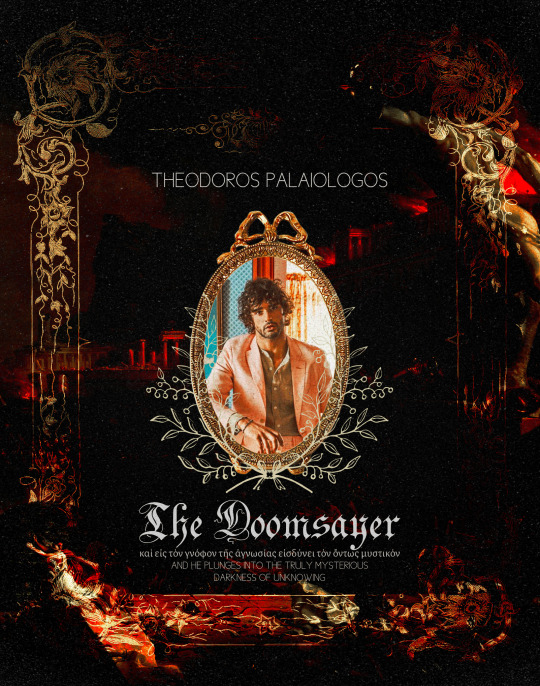

welcome THEODORE PALAIOLOGOS. you hail from BYZANTIUM and have been risen to the position of an EMPEROR. you are a member of the house of PALAIOLOGOS and will go down in history as the DOOMSAYER. though you are MACHIEVALLIAN & INSATIABLE, you are blessed with being ERUDITE and GREGARIOUS.

links. character study / playlist / pinterest / threads
━━ BASIC INFO.
NAME: theodoros NICKNAME: theodore, theo AGE: thirty-five PLACE OF BIRTH: palace of blachernae, constantinople IMPERIUM: byzantium GENDER: cisgender man PRONOUNS: he/him ORIENTATION: homosexual RELIGION: greek orthodox, somewhat of a mystic PARENTS: konstantinos & helena SIBLINGS andronikos, sophia LANGUAGES: greek, latin, arabic, french ( fluent ) italian, german, farsi ( conversational ) english, mandarin ( learning ) EDUCATION: private tutoring with the professors of the pandidakterion TITLE: basileus rhomaíōn, see also: autokrator, kyrios, despotes INTERESTS: theology, philosophy, wargames, mathematics, alchemy HOBBIES: reading, writing, horseriding, going on long walks LABEL the doomsayer
━━ PERSONALITY.
mbti. infj-t enneagram. 1w2, the activist instinct. sp/sx character inspo. rhaegar targaryen, a song of ice and fire / kendall roy, succession / paul atreides, dune / hektor, the iliad / rodion raskolnikov, crime and punishment
erudite, gregarious, perceptive, dutiful
machievellian, insatiable, melancholic, secretive
━━ SNAPSHOT.
character study HERE

known most everywhere as the emperor of a kingdom yet to realise it has already fallen, the basileus of the roman empire is a man out of time. the clock is running down on him and his empire, and yet he ( poor fool that he is! ) tries to save the imperium that was his birthright. charming and conciliatory, he has made great strides in establishing links towards the successor kingdoms of his empire’s former western half — setting aside orthodox pride over the great schism if only to stave off the bleeding of byzantium. one might almost be tempted to ask what the basileus might sell off next, if only to further exact an assurance for the salvation of his people.
in truth, the basileus might have been a man better suited for the monastery than the rooms encrusted with porphyry. as a child, he always had his nose stuck in some crumbling tome, his mouth always firing off incessant questions to counfound the philosophers who would claim their didactic lineage all the way to aristotle. yet his perception also gave rise to a profound insight when he was young: he was the inheritor of a kingdom about to die, and this changed him greatly. he could never be the sort of warrior that would stem the ottoman tide, but there is one thing he can do, and that is to shift his focus from the finer intricacies of the celestial hierarchies to the far more material hierarchies of this earth — a change that he still grieves for in his heart.
━━ TIMELINE.
1397. theodoros is born.
1398. his brother, andronikos, is born.
1403. his sister, sophia, is born.
1432. he arrives at the court of king charles of france.
━━ PLOTS.
possible betrothal connections, prior overtures he’s made, trading contracts he’s in the process of securing, religious brethren he’s trying to mend the schism for, etcetc — is it obvious i forgot to write this part and just put it in haphazardly at the last minute upon noticing my lapse?
#fw.intro#❛ THEODOROS PALAIOLOGOS ╱ every effigy collapses ✹ STUDY#quote in the charpsd is from mystical theology by pseudodionysios
2 notes
·
View notes
Photo

Congratulations, Val! You have been summoned to Moscow as THEODORE II. To accept your invitation, please refresh our guidelines, checklist, and send in your muse(s)’ blogs within (24) hours.
THEODORE II, the 38 year-old BYZANTINE EMPEROR/BASILEUS RHOMAIÔN has arrived from CONSTANTINOPLE. The USURPER resembles THEO JAMES and is both +VISIONARY and –UNYIELDING. They are a member of the HOUSE OF PALAIOLOGOS and remind the poets of a thousand golden mosaics sparkling bright as the sky-shattering sun; inky shadows playing across the face of a marble statue – perfect, unblinking, inscrutible; rooms tiled all in purple stone overlooking wine-dark seas and splendid green shores. In the annals of history, they will be remembered in the year of 1319 as a PLAYER. One day they may rise to greatness, though greater men and women have surely failed. (val — she/her — 21+ — est)
2 notes
·
View notes
Text
Events 8.15 (before 1900)
636 – Arab–Byzantine wars: The Battle of Yarmouk between the Byzantine Empire and the Rashidun Caliphate begins.
717 – Arab–Byzantine wars: Maslama ibn Abd al-Malik begins the Second Arab Siege of Constantinople, which will last for nearly a year.
718 – Arab–Byzantine wars: Raising of the Second Arab Siege of Constantinople.
747 – Carloman, mayor of the palace of Austrasia, renounces his position as majordomo and retires to a monastery near Rome. His brother, Pepin the Short, becomes the sole ruler (de facto) of the Frankish Kingdom.
778 – The Battle of Roncevaux Pass takes place between the army of Charlemagne and a Basque army.
805 – Noble Erchana of Dahauua grants the Bavarian town of Dachau to the Diocese of Freising
927 – The Saracens conquer and destroy Taranto.
982 – Holy Roman Emperor Otto II is defeated by the Saracens in the Battle of Capo Colonna, in Calabria.
1018 – Byzantine general Eustathios Daphnomeles blinds and captures Ibatzes of Bulgaria by a ruse, thereby ending Bulgarian resistance against Emperor Basil II's conquest of Bulgaria.
1038 – King Stephen I, the first king of Hungary, dies; his nephew, Peter Orseolo, succeeds him.
1057 – King Macbeth is killed at the Battle of Lumphanan by the forces of Máel Coluim mac Donnchada.
1070 – The Pavian-born Benedictine Lanfranc is appointed as the new Archbishop of Canterbury in England.
1096 – Starting date of the First Crusade as set by Pope Urban II.
1185 – The cave city of Vardzia is consecrated by Queen Tamar of Georgia.
1224 – The Livonian Brothers of the Sword, a Catholic military order, occupy Tarbatu (today Tartu) as part of the Livonian Crusade.
1237 – Spanish Reconquista: The Battle of the Puig between the Moorish forces of Taifa of Valencia against the Kingdom of Aragon culminates in an Aragonese victory.
1248 – The foundation stone of Cologne Cathedral, built to house the relics of the Three Wise Men, is laid. (Construction is eventually completed in 1880.)
1261 – Michael VIII Palaiologos is crowned as the first Byzantine emperor in fifty-seven years.
1281 – Mongol invasion of Japan: The Mongolian fleet of Kublai Khan is destroyed by a "divine wind" for the second time in the Battle of Kōan.
1430 – Francesco Sforza, lord of Milan, conquers Lucca.
1461 – The Empire of Trebizond surrenders to the forces of Sultan Mehmed II. This is regarded by some historians as the real end of the Byzantine Empire. Emperor David is exiled and later murdered.
1483 – Pope Sixtus IV consecrates the Sistine Chapel.
1511 – Afonso de Albuquerque of Portugal conquers Malacca, the capital of the Malacca Sultanate.
1517 – Seven Portuguese armed vessels led by Fernão Pires de Andrade meet Chinese officials at the Pearl River estuary.
1519 – Panama City, Panama is founded.
1537 – Asunción, Paraguay is founded.
1540 – Arequipa, Peru is founded.
1549 – Jesuit priest Francis Xavier comes ashore at Kagoshima (Traditional Japanese date: 22 July 1549).
1592 – Imjin War: At the Battle of Hansan Island, the Korean Navy, led by Yi Sun-sin, Yi Eok-gi, and Won Gyun, decisively defeats the Japanese Navy, led by Wakisaka Yasuharu.
1599 – Nine Years' War: Battle of Curlew Pass: Irish forces led by Hugh Roe O'Donnell successfully ambush English forces, led by Sir Conyers Clifford, sent to relieve Collooney Castle.
1695 – French forces end the bombardment of Brussels.
1760 – Seven Years' War: Battle of Liegnitz: Frederick the Great's victory over the Austrians under Ernst Gideon von Laudon.
1843 – Tivoli Gardens, one of the oldest still intact amusement parks in the world, opens in Copenhagen, Denmark.
1863 – The Anglo-Satsuma War begins between the Satsuma Domain of Japan and the United Kingdom (Traditional Japanese date: July 2, 1863).
1893 – Ibadan area becomes a British Protectorate after a treaty signed by Fijabi, the Baale of Ibadan with the British acting Governor of Lagos, George C. Denton.
1899 – Fratton Park football ground in Portsmouth, England is officially first opened.
0 notes
Photo
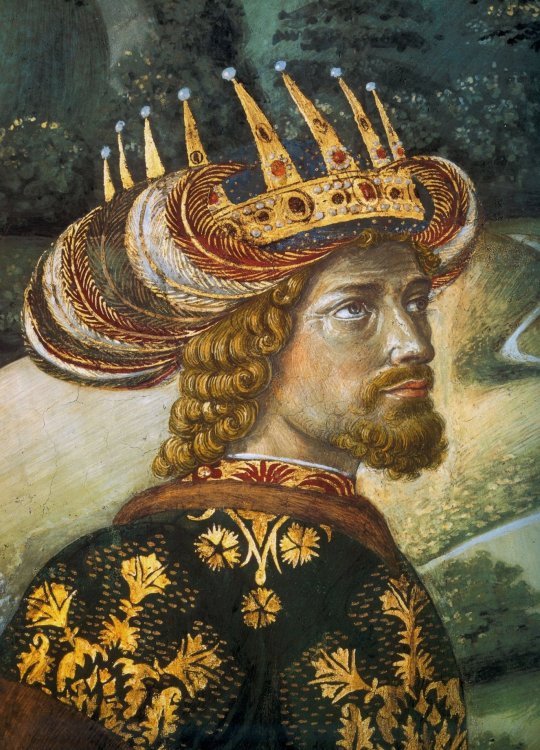
~ “When the Byzantine emperor John VIII Palaiologos or Palaeologus - born in Constantinople on December 18, 1392 - entered Florence, the population was amazed, fascinated by his way of dressing. It is said that Giovanni conditioned Florentine fashion for over a century, despite not being loved by the population, who considered him a malevolent and sarcastic person, simply because of his Byzantine origin. It was depicted in 1459 by Benozzo Gozzoli in the Adoration of the Magi, the famous cycle of frescoes housed in Palazzo Medici Riccardi in Florence and which was the pretext to represent the procession with Pope Pius II Piccolomini and the numerous personalities following him, who he arrived in Florence in April 1458, headed for Mantua.“ ~
1 note
·
View note
Photo

Congratulations, Ghost! You have been summoned to Moscow as CONSTANTIN OF BYZANTIUM (JANNIK SCHUMANN). To accept your invitation, please refresh our guidelines, checklist, and send in your muse(s)’ blogs within (24) hours.
CONSTANTIN, the THIRTY FOUR year-old IMPERIAL PRINCE/CAESAR has arrived from CONSTANTINOPLE. The DAUNTLESS resembles JANNIK SCHUMANN and is both +DEPENDABLE and –TEMPERAMENTAL. They are a member of the HOUSE OF PALAIOLOGOS and remind the poets of STORM CLOUDS ROLLING IN OVER THE SEA, THE POWER OF INK OVER GUNPOWDER and A SHARP WIT AND TONGUE. In the annals of history, they will be remembered in the year of 1319 as a PAWN. One day they may rise to greatness, though greater men and women have surely failed. ( ghost — she+her — 27 — est )
1 note
·
View note
Photo
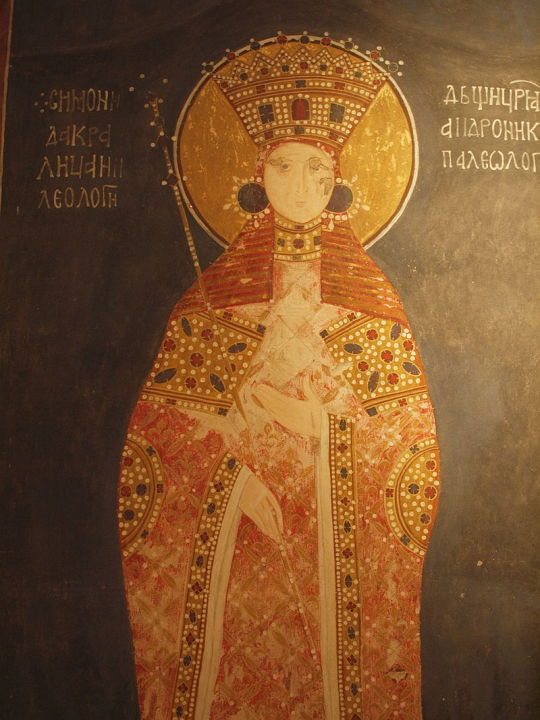
Simonida Nemanjić (c. 1294 – after 1336), born Simonis Palaiologina, was a Byzantine princess and queen consort of the Kingdom of Serbia as the fourth wife of Serbian king Stefan Milutin (r. 1282–1321). She was a daughter of the Byzantine Emperor Andronikos II Palaiologos (r. 1282–1328) and Irene of Montferrat. In Medieval Serbia Simonida is best remembered as a patron of the Arts, Music and Literature.
#Simonida Nemanjić#Simonis Palaiologina#House Palaiologos#XIII century#XIV century#mosaic#people#portrait#art#arte#Byzantine Empire
8 notes
·
View notes
Text
Saints&Reading: Tue., Dec. 21, 2021
Decembre 21_Decembre 8
THE MONK PATAPIUS (7th c.)

Saint Patapius was born in 380 in the Egyptian city of Thebes. His father was a governor of the region and a descendant of a well known Egyptian family. He and his wife were devout Christians and instructed Patapius in Scripture. As Patapius reached a mature age, well-known tutors were brought from Alexandria to instruct him in science, mathematics, philosophy and rhetoric. Through this education, he became acutely aware of how transient this world is and was attracted to the ascetic way of life. He was particularly inspired by Clement, Origen and Athanasius. His father also took him to the renowned catechetical school in Alexandria where Patapius came under the influence of a blind teacher named Didemus [1]. Didemus inspired him even further to desire the ascetic path he had chosen. When he finished his studies, he returned to Thebes to find out that his father had passed away. Desiring to live a life like the ascetics, he decided to leave for the Egyptian desert where he became well known for his ascetic deeds.
No longer able to find peace in the desert he set off for Constantinople in 428. During his voyage, he met his disciple Sechnuti, who was an Egyptian rower. [During this voyage, their ship passed near Corinth where they stayed for seven years]
By 435, after seven years in Corinth, Patapius left his skete in the Geranian mountains to resume his journey to Constantinople taking with him the monk Sechnuti. In Constantinople, they secretly went to the Monastery of Blachernae, where he obtained a cell in the city wall. Patapius kept his identity a secret and resumed a life of strict fasting, vigil and prayer under the guise of a simple monk.
Here he performed many miracles of healing. After a life adorned with virtue and miracles, he died at a great age of eighty-three (83) in 463 and was buried by his disciples in the church of St. John the Baptist in Constaninople of Petras (of Stone) which was under the protection of the royal family of Constantinople, Palaiologoi, and especially of Saint Hipomoni (Saint Patience) who was the mother of the last emperor of Byzantium, Constantine Palaiologos.
Since the saint's repose, the Church has carefully preserved the stories of his life and his sacred relics. One thousand years after the repose of the saint, when the Turks captured Constantinople, his relics where removed and taken to the little cave-skete in Corinth (as he had requested during his lifetime). The saint's body was hidden behind a western wall in the cave facing the iconostasis and chapel they built.
In the early 20th-century a local priest[2] discovered the relics of the saint hidden in the wall. He was an unnaturally tall priest who regularly served this small chapel and because of his height commissioned some changes to the chapel. The night before the works to the western wall were to commence, Fr. Constantine had a dream in which a monk warned him to "take care when you break the wall because I am on the other side. I am Saint Patapius of Egypt." He was found the next day holding a large wooden cross on his chest, a parchment scroll with his identity and large leaves covering his uncorrupted relics as fresh as they had been picked that very moment.
Since his relics have been discovered, many people have been visited by the saint in visions and dreams asking them to visit "his house in Loutraki". He is especially known for healing cancer and miracles occur world-wide throughout the world, including Australia and America.
Troparion in Tone 8
The image of God was truly preserved in you, O Father,for you took up the Cross and followed Christ.By so doing you taught us to disregard the flesh for it passes awaybut to care instead for the soul, since it is immortal.Therefore your spirit, venerable Patápius, rejoices with the angels.
Source: orthodoxwiki
THE HOLY DISCIPLES FROM THE 70: SOSTHENES, APOLLOS, CEPHAS, TYKHIKOS, EPAPHRODITES, CAESARIUS, ONYSIPHOROS

In the Acts of the Holy Apostles we read the following: “A certain Jew named Apollos, born in Alexandria, eloquent and well-versed in the Scriptures, came to Ephesus. He was instructed in the way of the Lord; and being fervent in the spirit, he spoke and taught diligently the things of the Lord, knowing only the baptism of John. He began to speak boldly in the synagogue. Hearing him, Aquila and Priscilla took him and more precisely explained to him the way of the Lord. And when he resolved to go to Achaia, the brethren wrote and asked the disciples to receive him. When he got there, he greatly helped those who believed by grace, for he powerfully confounded the Jews in public, showing by the Scriptures that Jesus is the Christ” (Acts 18:24-28).
Saint Apollos assisted the Apostle Paul. Saint Paul speaks about the spread of Christianity among the Corinthians, “I have planted, Apollos watered, but God gave the growth” (1 Cor.3:6). Saint Apollos was later bishop at Smyrna (Asia Minor).
These holy apostles are also commemorated on December 8 and the Synaxis of the Seventy Apostles on January 4.
Source: orthodoxchristian


LUKE 21:12-19
12 But before all these things, they will lay their hands on you and persecute you, delivering you up to the synagogues and prisons. You will be brought before kings and rulers for My name's sake. 13 But it will turn out for you as an occasion for testimony. 14 Therefore settle it in your hearts not to meditate beforehand on what you will answer; 15 for I will give you a mouth and wisdom which all your adversaries will not be able to contradict or resist. 16 You will be betrayed even by parents and brothers, relatives and friends; and they will put some of you to death. 17 And you will be hated by all for My name's sake. 18 But not a hair of your head shall be lost. 19 By your patience possess your souls.
1 TIMOTHY 5:11-21
11 But refuse the younger widows; for when they have begun to grow wanton against Christ, they desire to marry, 12 having condemnation because they have cast off their first faith. 13 And besides they learn to be idle, wandering about from house to house, and not only idle but also gossips and busybodies, saying things which they ought not. 14 Therefore I desire that the younger widows marry, bear children, manage the house, give no opportunity to the adversary to speak reproachfully. 15 For some have already turned aside after Satan. 16If any believing man or woman has widows, let them relieve them, and do not let the church be burdened, that it may relieve those who are really widows. 17 Let the elders who rule well be counted worthy of double honor, especially those who labor in the word and doctrine. 18 For the Scripture says, "You shall not muzzle an ox while it treads out the grain," and, "The laborer is worthy of his wages." 19 Do not receive an accusation against an elder except from two or three witnesses. 20 Those who are sinning rebuke in the presence of all, that the rest also may fear. 21 I charge you before God and the Lord Jesus Christ and the elect angels that you observe these things without prejudice, doing nothing with partiality.
#orthodoxy#orthodoxchristianity#originofchristianity#spirituality#holyscriptures#gospel#bible#wisdom
1 note
·
View note
Photo










House of Hohenstaufen & Byzantine Imperial Family:
Konstanze “Anna” of Hohenstaufen
Konstanze was born as the daughter of Holy Roman Emperor Frederick II and his mistress Bianca Lancia. Matthew of Paris reports that Frederick married his mistress on her deathbed and thereby legitimized his children by her. The church never noted this marriage down but Frederick did definitely consider his children by Bianca as legitimate since he treated them like they were. Konstanze’s brother became the heir to the Italian throne and she was promised to the Nicaen Emperor.
In 1244, Konstanze was married to Byzantine Emperor John III Doukas Vatatzes of Nicaea. She was 14 while he was 52. This marriage, unsurprisingly, was not very happy. Konstanze, who as tradition demanded had taken a new name and was now called Anna, was soon replaced in all but name by a young mistress. The mistress’ name is unknown but it is speculated that she actually belonged to Anna’s ladies-in-waiting. At the same time, Konstanze’s father was facing issues because of this marriage. The Pope was extremely against Konstanze marrying the Byzantine Emperor and even went so far to try to replace the Holy Roman Emperor with a candidate of his own choosing.
Konstanze became a widow on November 3rd, 1254, when she was in her mid-twenties. Her father had no intervened in her marriage since he needed Byzantine Empire’s military and financial support. She was completely isolated at court even after her husband’s death. The Byzantines viewed her as a hostage to pressure the House of Hohenstaufen into doing their biding. It would take another seven years until John’s son by Irene Laskarina, who was a sister of Eudokia Laskarina, The Hereditary Duchess of Austria, died and his son was forced from his position and Konstanze’s situation changed.
The new Byzantine Emperor Michael VIII Palaiologos fell in love with the now 31-year-old Konstanze. Michael asked for a divorce from his wife Theodora. It is uncertain whether Konstanze was also interested in him or was even his mistress at the time, she might have even been against the match herself. However the match was never made since the privy council and the Patriarch of Constantinople turned the proposal down.
In 1262, King Manfred of Sicily, Konstanze’s brother, received the captive Alexios Strategopoulos from his second wife’s brother Nikephoros I Komnenos Doukas. Three years later, Manfred successfully randsomed hin for his sister Konstanze who now went to South Italy. Only a year later, Manfred was killed in battle and most of her family was captured by Charles I of Anjou. However, Konstanze was one of the few people who were able to flee in time. She went to her niece who was married to the future king Peter III of Aragon and was also the Hohenstaufen heiress to Italy after her father’s death.
Konstanze remained for a short time at the court of her niece of the same name before she decided to retire to a monastery in Valencia. She spent the rest of her life as a nun. Konstanze died at the age of 66 or 67 in April of the year 1307. Her wooden casket is stored inside the church of San Juan del Hospital in Valencia until this very day.
// Ece Çeşmioğlu in Magnificent Century: Kösem (2015-17)
#historyedit#women in history#historic women#Middle Ages#1200s#13th century#Byzantine Empire#Holy Roman Empire#House of Hohenstaufen#Konstanze of Hohenstaufen#Empress Anna of Nicaea#German history#European history
137 notes
·
View notes
Text
The Marble Emperor
**DISCLAIMER: This short story was originally written back in 2014 for a college writing class.**
*May 28th, 1453*
Byzantine Emperor Constantine XI Dragaš Palaiologos knelt on the cold marble floor of the Hagia Sophia, the church at the center of Constantinople, with his head bowed and his eyes closed in prayer.
“To surrender the city to you is beyond my authority or anyone else's who lives in it, for all of us, after taking the mutual decision, shall die out of free will without sparing our lives,” he had growled as he threw the Turkish delegation out.
His father Manuel II, his mother Helena, and his older brother John VIII had prepared Constantine his entire life for the possibility that the Ottomans would one day try to destroy the Empire. (If they were here, they would know what to do, he thought solemnly.) Their stories of the centuries of Muslim atrocities against Christians horrified him as a child. And he suffered a bitter military loss when the Turks drove his armies from an attempted conquest of Athens back to Corinth in 1446. Therefore, from the moment he took the throne in 1449, he undertook to strengthen the city and spill their blood fighting for it. But now those very words of defiance came back to bite him like vipers that now hissed with the accusation, What empire is there left to destroy? What empire indeed? The Byzantines were the eastern, Greek speaking descendants of the Roman Empire, which once had uncontested dominion from Britain to Persia. After ten centuries of weathering attacks from barbarians, Muslims, and Christians alike, however, the Byzantines now only ruled a small portion of the southernmost part of Greece called the Despotate of the Morea (astride what used to be Sparta), a handful of Aegean islands, and the immediate environs of Constantinople.
And yet, Constantine reflected, he was not truly alone in this fight. Kneeling in prayer beside him was Giovanni Gustiniani. Constantine had joked to Giovanni during a rare break in the siege that he was the only good man to ever come out of Genoa. But it was true. The Italian had sailed to Constantinople’s aid with seven hundred Genoese mercenaries. But far more importantly, he quickly became Constantine’s protostrator (or second in command) and made sure the ragtag Byzantine, Genoese, and Venetian soldiers remained unified and could effectively defend the walls. Without his help, the city would not have held out for as long as it had so far.
Right now, though, Giovanni looked worried as he turned to Constantine. Constantine did his best to not show the fear that this look caused to spread through his whole body. If Giovanni was nervous, then surely something must be wrong. But Constantine dared not show his trepidation. He certainly could not afford to appear weak in front of the throng of thousands of civilian refugees who had been praying with them. They now took shelter in the center of this cathedral that remained strong for them and that housed the priests who fed them with meager stores of bread, even as paint from the mosaics peeled off and critical masonry in the walls started to show cracks and strain. It seemed to the Emperor that his subjects were also barely holding themselves together, especially recently.
On the night of May 22nd, when the Moon rose, it was partially eclipsed by the Earth's shadow and its light glowed red like blood. This already caused enough panic for Constantine and what remained of his government in a city that had been besieged for a month to have to deal with. To make things worse, rumors flew around that there was a prophecy that the city would fall after a blood moon. Then four days later, the entire city was blanketed by a large, thick, and choking cloud of black fog. When the fog lifted, there appeared around the dome of the Hagia Sophia a strange multicolored light, which some hoped came from the fires of foreign armies come to relieve the city. Most, however, despaired, wailing throughout the crumbling streets that the Holy Spirit had abandoned the capital to the heathens.
Under these circumstances, Constantine could not blame anyone for panicking. He almost envied that they were able to scream.
"Is there something that troubles you, my friend?" he asked calmly, placing a large, weary hand on the Italian captain's shoulder.
"I don't know quite how to say this, my lord..."
"Please. We have known each other long enough, Giovanni. It is Constantine."
"Alright- Constantine," Giovanni stammered quietly, hoping that he wasn't disturbing the Latin and Greek churchmen and the Imperial nobility who sat immediately behind him as the service continued. "I am afraid I must beg leave to attend to the walls. It appears that the Turks are concentrating their cannon fire on the Blachernae." These were the most weakened walls, and were situated in the northwest of the city.
“I will excuse you and ask for God's forgiveness on your behalf if He should be offended by this," Constantine nodded.
As Giovanni attempted to slink towards the exit without arousing the panic of the commoners or the offended huffs of the churchmen, Constantine wished that he could leave. He was, of course, a very devout Christian, and it was important that the Emperor remain implacably, solemnly beseeching of God's mercy at a time like this. But now he could very well feel the weight of the sword on his right hip and the shield leaning on his left arm, and he knew they would soon be needed.
*****
*Rumeli Hisari, Ottoman Fortress Just North of Constantinople*
"Are you sure that it will not break this time?" Sultan Mehmed shouted at Orban the Dacian, his Hungarian gunsmith. He did this not out of any anger towards the other man, but simply in order for his words to be heard over the constant gunfire.
"Yes, my lord," Orban bowed. "I have made several small but important improvements to the design since the last time we fired it."
"Excellent, my friend," Mehmed replied.
However, the Sultan made a careful mental note to keep an eye on Orban. He had initially offered to work for the Byzantines. It was only because his asking price was too high and because the Byzantines did not have the resources necessary for what he was asking to create them that he had changed sides, and that would pose a problem.
“When will it be ready?"
Orban's blond mustache trembled before he said, "I- I have the full team of sixty oxen and four hundred men rolling it into position in front of the fort even as we speak."
"Good," Mehmed smiled, something which Orban had rarely seen.
Orban then enthusiastically cried, "I will go down there and personally make sure that it is aimed and fired properly. Where would you like me to aim it?"
"See how the other cannons are concentrating their fire at the northwest corner?" Mehmed asked and then pointed.
Orban nodded and immediately rushed down and made preparations to fire upon the Blachernae. At whatever price his loyalty may have been bought to start with, with that gesture Mehmed was now confident that Orban would remain on his side.
When he came to the throne two years earlier after the death of his father, Sultan Murad II, no one would have ever thought that Mehmed, then only nineteen, would ever inspire any kind of loyalty or do anything great. Even Mehmed himself had not been confident in himself when he took the throne.
He had done it before, ruling for a short time when his father abdicated in 1444. But he was only twelve at the time. Frustrated when his teachers assumed he could not do anything competently, took power out from under him, and then nearly ran the entire nation into the ground, Mehmed had had to supplicate his father to return to the throne and resented being lectured by the old fool afterwards. Thereafter father and son bitterly resented each other.
Mehmed had not wanted to have to go through it all again, and almost cursed Allah for taking his father away and making him do this.
But as his father lay dying in 1451, he had summoned young Mehmed into his chambers and had him sit beside him on the bed and read from one of the hadiths, a report of the deeds and sayings of the Prophet Muhammad (Peace Be Upon Him). In it he said, "Verily you shall conquer Constantinople. What a wonderful leader will he be, and what a wonderful army will that army be!"
"I know that you can do what I could not, my son," Sultan Murad coughed, and then closed his eyes and drifted into Paradise.
His teacher Ak Şemseddin had drilled into him from the moment he could read that it was his Islamic duty to capture Constantinople. And now, as he wept for the loss of his father, Mehmed was reminded of that. He knew what his first act in office must be, and knew that the Christian and Muslim enemies that surrounded him would never take him seriously unless he did this. Therefore, from the moment he had taken the throne, Mehmed prepared his armies to crush Constantinople. In doing so, he would succeed where Muslim armies had failed since 678. In the process he would eliminate a small but annoying foe in the middle of his country, establish for it a natural capital, and turn his Sultanate into an heir to the glory of Rome herself.
Of course, since he was a reasonable man, he had first offered a way for Byzantine "Emperor" Constantine to step down without bloodshed. He didn’t expect Constantine would *agree*, but all this blood was now on the Greek.
"Fire!" the Sultan cried once Orban had positioned the cannon correctly. It was now midnight on the morning of May 29th, and the Sultan now prayed that this would mark the final assault that would deliver the city to himself, his people, and to Allah.
No sooner had the fuse been lit then the hiss and pop of the fire dancing on the edges of the rope that fed itself into the monstrous bronze beast echoed within its cavernous belly. To some who were on the ground, it was almost was as if this cannon, which was heavier than several ships put together, was an unholy djinn taking a deep inhalation before breathing out terrible fire upon its enemies. And when it belched its black smoke, wheels taller than two men standing on top of one another nearly buckled from the recoil as the ball sailed across the Golden Horn, the small inlet that formed the northern boundary of Constantinople.
Several soldiers immediately noticed another loud bang emerge from the metal dragon. But none of them remembered loading and firing it at all, which seemed odd. One went to take a closer look. By the time he heard another angry shout emerging from the cracks, however, an enraged fireball devoured him and spat out only ash in its wake. The frightened rabbits ran for their lives but it was already too late. Mehmed could not bear to watch the carnage below him. When the bloated weapon finally shuddered and died, he despaired to learn that was left of Orban had been incinerated in the blast and crushed by falling pieces of bronze as well.
Struggling to keep away tears so as not to panic those men who still lived and were dealing with the horror of seeing their mangled comrades, the Sultan's eyes followed the cannonball for a moment before he knelt on the fortress's walls and made this solemn prayer.
"Allah, if it be your will, bring Orban into Paradise and let his death not have been in vain. Bless our endeavor this night and deliver Constantinople unto us."
"What will you have me do, my lord?" the Commander of the Janissaries, the Empire's brave, elite soldiers, asked the Sultan.
"Assemble every man you have and prepare to attack!"
*****
"All of you, get away from the walls and take cover!" Giovanni cried. He was at the front of the line, waving with his sword and banging his shield to get the attention of those who were still manning the Blachernae guard posts at that moment.
Most saw his message and tried to escape by leaping away from the towers and onto piles of hay below. This did not work at all, but fortunately, when compared to those who were caught on the walls when the cannonball slammed into them, their deaths were swift and painless.
Giovanni squinted as his entire body and his suit of armor was coated in a thin layer of powdered limestone from the hole that had been punched through the city's defenses. And worse, mere moments seemed to pass before a horde of howling Turks streamed through the walls, seemingly endless. And not just any Turks.
Janissaries.
Brutal, merciless, and born only to kill and maim, these monstrous, gnarled mercenaries drove fear into the hearts of the defenders.
"Stand your ground!" Giovanni yelled. "For we will fight and die honorably and on our feet, as our Roman forefathers did before us!"
He did not get to say much more before a river of Turkish shields slammed against his own. The Italian leaned his shoulder into his shield to push back against them and stabbed his foes through whatever hole in their guard he could find, coating the cobblestones generously with their blood.
Just as Giovanni was about to say something further to rally the defenders to push the Turks back towards the breach in the wall, a crossbow bolt lodged itself in his throat and stifled the Emperor's friend forever. And as word of Giovanni's death spread around the ranks, the Byzantines and their foreign allies broke ranks and retreated now that the man who had single-handedly kept the Empire together was gone.
“Why are they retreating?" Emperor Constantine asked to himself with his hands folded behind his long purple robes, even though he already knew what the answer was.
"I do not know, my lord," one of the churchmen said.
"The Turks are pouring into the city like a river!" a man who used to be a merchant yelled. "We're doomed!"
"I just saw two priests disappear into the cathedral walls! God is punishing us up for our sins," a woman sobbed.
But then, even though Constantine was coming apart at the moment he knew the city was lost, the Emperor walked calmly through the teeming masses and said, "My friends, fellow Romans! Do not despair. For whatever happens this night, trust in our Lord and Savior, for he has said to us, 'Blessed are the poor in spirit, for theirs is the kingdom of heaven'."
With that, Constantine commanded the guards still inside to bolt the doors to the Hagia Sophia, quickly picked up his sword and shield, and ran through the city in full armor, fueled by adrenaline to meet with his men before they could completely retreat.
His robes were long and cumbersome and the trappings of what little of his Imperial office he had left now only served to slow him down. With that, he cried at the top of his lungs, "The city is fallen and I am still alive," tore them off so as to no longer distinguish himself from his soldiers, and charged into the fray with them. After that, no one saw Constantine again.
Some say even to this day that just at the moment of his death, an angel flew in and carried the beloved last Emperor of Rome away. Others say he left the battle, stood atop a platform overlooking the carnage, and wept before hanging himself.
From that moment on, he became the Marble Emperor, turned to stone and entombed underneath the city until he would awaken again in its hour of need. Simultaneously, legends grew that the two priests who disappeared into the walls of Hagia Sofia would reemerge when the city would be retaken by the soldiers of Christ.
*****
The great oak doors to the Hagia Sophia now leaned slackly against the rotting pillars of stone as the Sultan entered the passageway. It had only been three days since the Ottomans captured Constantinople and already his workers were busy painting over the mosaics of Mary with child with beautiful white Arabic lettering on top of a simple black background, as well as placing minarets at the tops of the towers. Within a month, his planners told him, the mosque would be renovated enough to allow for Friday prayers to be read.
Mehmed's soldiers had also been hard at work looting over the past three days, an enterprise that personally disgusted the young ruler. But this had to be allowed, if only for this limited amount of time, for soldiers on any side of a war these days were often a fickle bunch, prone to deserting if every little demand of theirs was not met. For instance, he had had to build Rumeli Hisari in the shape of the Arabic letters for Muhammad in order to keep morale up, and that had only lasted a week. (It hadn't hurt, however, that his name was styled the same way.)
The results of the three day looting period were almost too much for him to gaze upon. Elderly men who just days earlier had been praying for deliverance from the prophet Isa, who they called Jesus, were now stacked on wagons and preparing to be dumped into the Bosporus. Children were in shackles, about to be sold to slave markets as far as the Songhai in the heart of Africa. And women and young girls were weeping, their clothes in tatters.
He could do nothing about those whose freedom had already been lost, but now his voice boomed through the mosque,
"Henceforth, those who are still in hiding will not be harmed."
Hopefully, he thought, this would be the first step in beginning to rebuild the city to its former glory. Soon, he reasoned, it would become the glorious, shimmering golden crown of an Empire without end. It would welcome commerce from all over the world, shelter Muslim, Christian, and Jew, and become the greatest power the world had ever known. "The spider weaves the curtains in the palace of the Caesars and the owl calls the watches in the towers of Afrasiab," Mehmed had proclaimed when he first stepped into the city. Hopefully, that would not be the case for much longer.
8 notes
·
View notes
Note
cyrus - describe your muse’s ideal afternoon.
wu zetian - everyone feels like they should have been born in a different era, whether it is in the past or future. where on the timeline does your muse feel like they would have fit in better?
ptolemy - how does your muse feel about change?
michael viii palaiologos - does your muse believe that love is a feeling or a choice?
Cyrus - Mary’s ideal afternoon is a quiet afternoon where she does not have much housework to tend to. Thomas easily goes down for a nap and Abraham helped her take the laundry off of the line. She enjoys when the house is still and quiet, as that has been a rarity since the war started. So, the odd quiet afternoon on an early summer day is greatly welcomed.
Wu Zetian - Mary doesn’t really dream of distant times and lands. It does little good to waste one’s life away on dreams. But, she wishes she could go back to when the King and Country weren’t at war.
Ptolemy - She’s always been rather adverse to change. Not that she believes that the world should remain stagnant. That’s not how God intended it to be. There’s a reason the seasons change. But she fears change due to unfamiliarity. She likes to know what to expect.
Michael VIII Palaiologos - Mary believes it is a feeling. Despite all she has weathered because of Abraham, or perhaps because she has weathered so much with him, she loves him. It isn’t the love of poets or musicians, of course. Her love for Abraham exists, in part, because of their son. But there are moments when Abraham’s features are perfectly hit by early morning light or she’s reminded of his mind that take her breath away.
1 note
·
View note
Text
the marble king, part 3 [part 1] [part 2] [read on ao3]
Troy, 1453
“No.”
“Perseus.”
“No!”
“Then I shall go without you.”
“Then I wish you luck on finding safe passage.”
She glared at him, and he returned her gaze in full force. “You know it to be the most strategic action to take.”
“Were you not the one who told me in the first place, that the despotes were incompetent fools?”
“They are.” She shifted on her lackluster cushioning before their campfire, the place where the great brazier of Chiron’s agoge had once stood.
The journey to Sigeion had taken them merely a day, thanks entirely to Percy and his skills at navigation. Annabeth had been somewhat less than helpful, choosing to spend the bulk of the voyage sulking at the back of their craft, rather than assisting him, though of course, he did not need it. After night and the city had fallen in its entirety, the two had resolved to seek out the centaur Chiron in order to tell him the news, and to ask his guidance on what to do, yet when they arrived on the shores of that familiar site, to their dismay, the camp had entirely vanished.
Where once had been a small but thriving little town, now there lay naught but sand and stone. This safe, sacred place for demigods, built in the shadow and memory of Ilion, was gone, with no indication of where, when, or how. Gone were the vast vineyards and olive orchards which had fed and watered them; gone were the horsetrack and the amphitheater wherein they had honed their skills; gone were the temples and monuments, the Big House and all the little villas where he had worked and eaten and laughed with his friends and companions.
Aeneas had left a burning city behind him, his son in hand and his father on his back, but there was nothing here save for untouched earth and windworn stone.
There had been a fountain in the villa set aside for Poseidon’s children, a gift from an absent father who thought to forge a stronger bond with his only child in decades, one that Percy had hoped to use, but that was gone as well, as was the great stockpile of weapons and armor and ambrosia. Nothing of the home they had once known remained.
They had, Percy and Annabeth, agreed to take their rest in the place where camp had once stood for three days, in order to rest, recover, and plan their next course of action. Annabeth, always thinking several steps ahead, had recalled a hidden cache of supplies further inland, and had gone to fetch them while Percy made use of his skills and prepared them their dinners and their sacrifices. Of course, as one might expect, their proposed plans were quite at odds, and their tentative alliance had met its very first obstacle.
Staring into the fire, Annabeth drew patterns in the earth with the burned point of her stick--be they battle plans or rude words, Percy could not tell from his vantage point across from her. “Understand me well, Perseus, this is not a strategy I enjoy.”
“Then let us travel North,” he said, “to Aachen.”
Scowling, she threw the stick into the fire.
“We need to get word of this attack to the Twelfth Legion.”
“To Tartarus with the Twelfth Legion.”
“They are good people,” he pointed out, “and what is more, they have the fighting force we need.”
“The Latins have had Constantinople beneath their boot for the last two hundred years, and now you want to go crawling back to them and beg for their help?” Lifting her chin, she pierced him with her gaze from across the fire, furious and arresting. “Do you forget your history so easily?”
“As you said, it has been two hundred years.” The insult dealt by the Twelfth Legion in the form of the Fourth Crusade, he knew, was a particular point of contention for her, but, to Percy’s mind, there was no point in dwelling on it, for no man alive today could remember the events of such a far-off past. What was more, he knew the Legion personally, had even fought with them, a fact which Annabeth had, apparently, never forgiven him for. “I can send a message to Iason, or Franko--”
She scoffed. “As if the Legion would ever deign to assist a pair of wayward Hellenes. They would do what all Latins do, force their practices and their laws upon those who cannot fight back. Look at what they have done to you!” she said, gesturing to his arm, where the mark of the empire had been branded into his skin.
Despite his best attempts, he found himself bristling, rising to her challenge. “The Legion is the only place left for demigods now.”
“No,” she shook her head, “The agoge can’t have--it can’t have just vanished into thin air. Chiron is out there, somewhere, with all of our siblings and friends.”
“And you would disrespect them by throwing in your lot with the Christian kings of the Morea? Men you do not even respect?”
In fury, she rose from her seat, fists clenched. “For all that the despotes lack, they have one trait that deserves our support: their name. The Romans will rally round Thomas, and if not him, then Demetrios will serve our purposes equally as well.”
He narrowed his eyes. A woman of many plans was this Annabeth Fredriksdotter, and he knew her well enough to know that this barely scratched the surface of what she had in store. He knew her to be a woman of great ambition, as he had witnessed many times over the years, and one whose military mind was quite unmatched. She took great pride in her plans, and in the sharing of them; even in such a difficult situation as this, surely she had something more than simply making their case to the guards at the Hexamilion wall and hoping for the best.
“You know that they will not listen to you.”
“Then I will make them listen.”
Percy had no doubt that she could, one way or another. But something about the way she spoke gave him pause. How would a woman such as her endeavor to get a man like Thomas Palaiologos to listen to her? What great women often must do to get great men to listen to them, he supposed. “You plan on entering yourself into marriage with one of them.”
Rounding out her jaw, she sat back down, arms crossed. “And what of it?”
“You think you can compel Thomas to try his hand against the Turks.”
“Theodora once did the same for her husband,” she said, “and from her efforts the riots of Nika were quelled.”
“Wives can work many miracles indeed,” said Percy, “I do not argue that point,” though he wished he had a reason to. For some odd reason, the idea of Annabeth wed set his blood pulsing in ways he did not understand.
“Well If I must be married to a Christian, let him be one I can use.”
His heart pounded in his chest, his tongue numb in his mouth. Annabeth wed to a Christian--he nearly snarled at the thought. “Then shall I call you empress already?”
She blushed, visible even in the firelight. “Stop it.”
“I am merely giving you the respect that you seem to believe you deserve, Basileia,” he sneered. He did not know from where this anger had come, harsh words tripping off his tongue before he could stop them. “Does her imperial majesty Ana Zabeta bring a great dowry into her marriage beyond her military strategy and her plan to manipulate her husband?”
“I said, stop it.”
Percy had been preparing a jab at her future sons, heirs to a measly handful of rocks and ancient gold coins, when he looked at her--truly, looked at her.
He had never known her to be anything less than intimidating. Even as children, she would not hesitate to push him around, a challenge he had welcomed and met with equal parts animosity and laughter. Their constant bickering had been legendary, and not just because of their respective divine parentages. It seemed that the two of them could not bear to spend more than thirty minutes in each other’s presences without devolving into some useless debate which served no purpose but to whet their appetites on the rivalry which had stretched all the way from the contest of Athens. For all his posturing and complaining, it was not a relationship that he hated. In fact, he would go so far as to say that, after some time, he had come to enjoy her presence in his life, despite the vitriol and insults that they slung at each other. On any other night, he would have continued to push her, because he could, because that was their practice with each other.
Tonight, however, she shivered in the cool breeze despite the heart of the fire, pulling her shawl about her. Her perfect posture slumped, and even the perfect curls of her hair seemed deflated, falling limply down her shoulders and back, a far, far cry from the careful manner in which she arranged it. Her face, burnt and peeling from the sun, was hardened, yet the cracks in the surface were easily distinguished the longer he looked at her.
He sighed, shrugging off his own coat, before standing and going to her, wrapping it around her shoulders. “I apologize,” he said. “I did not mean to upset you.”
Even looking at her now, shivering and slumped and just this side of defeated, in his heart of hearts he knew that she would make a fine empress. No man could turn down her proposal, and should the Palaiologai refuse, then they deserved whatever fate was coming to them.
Rather than refuse, she drew his coat around her as well, in a manner so unlike her.
“It is alright,” she said. “I take no offense.”
Theirs was an acquaintanceship long and storied, but one which would not survive this new and strange world, should they keep to their ancient ways. “I do not wish to fight with you anymore,” he said, and to his great surprise, he meant it.
“Nor I you,” said she, softly. “Please, sit with me here.”
He blinked, stunned, as though another cannonball had just struck the ground near his feet.
“It’s not a trick,” she said, rolling her eyes. “Sit. I am cold.”
Stiffly, he lowered himself to sit next to her, perched on the edge of her rock. Annabeth was most skilled at close quarters combat, he recalled, and she could, most likely, kill him sitting down as well. But threaten him she did not, instead, she merely scooted closer to him, extending one arm of the large cloak so that they could share.
And, well, it was a cold night.
They sat, huddled together before the campfire, as the smoke carried the sparks towards the heavens. After some time, she laid her head upon his shoulder, her hair so soft against his bare skin, and he thought he could feel her heartbeat against his side, as furious as a war drum--or perhaps that was his own. “I, too, am sorry,” she said, with no trace of malice. “You were correct.”
“Annabeth, admitting she was wrong? The world truly is ending,” he teased, then froze at his inappropriate jest.
Still, she laughed, huffing a breath and jostling him with an elbow. “About the Palaiologai, I mean.” Sighing, she ran a corner of his cloak through her fingers, picking at the loose thread there. “The despotes really are incompetent fools who have run their territory into the ground all in the name of foolish fraternal in-fighting, and no man in his right mind should follow either one of them into battle. If the princess Zoe were older, perhaps, she could be the figurehead that we need, but I don’t believe that would be a moral course of action.”
“I agree,” said Percy. “Let us leave the poor girl out of this.” The porphyrogenita was merely four years old, younger than his own dear sister; he shuddered to think of someone so young drawn into a conflict like this. And yet, of course, she was a girl--no doubt the Catholics would have some nefarious purpose in mind for her when she came of age. He thought again of marriage, that damnable contract, and his face grew hot.
“I just…”
Percy did not think it were possible, but Annabeth moved herself even closer into his one-armed embrace at the sudden gust of wind, dark and chill, as their campfire wavered threateningly. She must have bathed herself in the sea earlier, he thought, as her hair smelt of salt, and smoke from their fire, her curls tossed wildly by the waves and the wind, an altogether not unpleasant scent.
Then, so softly, so quietly as though he thought he might have dreamt it, he heard her whisper, “I just cannot believe that they’re gone.”
The case of the missing camp was peculiar indeed, and Percy was somewhat ashamed at how few thoughts he had spent on his vanished friends. He could only handle a single calamity at any given time. Annabeth, he knew though, had run away from her home far in the North when she had been a young girl, and had spent much of her childhood on these very shores, with all of her siblings and friends surrounding her. No doubt she was worrying herself sick over their whereabouts and their health. “Wherever they are,” he tried to assure, “I am sure Chiron is taking good care of them. Perhaps they are even searching for us, and this may be the first place they seek.”
“No,” she shook her head, which only served to slot herself further against his side, and Percy tried very very hard not to shiver at the press of her warm body against his, “I do not mean our fellow demigods.”
“Then of whom do you speak?”
She lifted her head then, looking at him incredulously. “The gods, Perseus.”
He frowned. “Annabeth, I saw them--”
“I know that you believe you witnessed something, but it can’t have been what you thought. It simply can’t.”
“Rachael witnessed it as well,” he pointed out, “and you know that she has a clearer sight than either of us.”
But she would not hear him. “I wish to go to Athens.”
“Athens? Annabeth, that is nearly as dangerous as the Morea--”
“I must go to the Acropolis,” she insisted, eyes wild as though some madness had possessed her. “My mother will be there, I can feel it. And when I get there, I will make a sacrifice in that horrible building for which they cannibalized the mighty Parthenon, and there she will speak with me.”
Truly, a part of him envied her faith. There had been a time when he had had the same enduring faith in his own father, in the power of the gods and in their enduring legacy--that the very same siege which had broken his faith so surely had not even shaken hers was nothing short of miraculous.
“I wish I felt the same as you,” he told her, “but I cannot let you go to Athens alone.”
“You should come with me, for perhaps you may be able to speak to your father there as well.”
The warmth of the fire deserted him, as if it had been snuffed out, and even Annabeth’s body no longer provided him comfort. Jaw clenching, he turned his face away from the sea, away from the sweet scent of her hair, glaring off into the black night. “He will not be there.”
“Well you yourself said that we could not attempt the Isthmus of Corinth; therefore, by that logic, Athens would be the next place to go. You know as well as I do how the Athenians venerated your father, despite him losing the contest. If you go to the Erechtheion, perhaps he may come to you--”
“He will not,” said Percy. Along the shore, the waves thrashed against the sand, striking stone and splitting earth.
“How do you know he will not? Are you so certain that our families have abandoned us that you will not even attempt to reach out to them?”
“I know because I have already tried.” Without the proximity of her body, he felt the night chill ever more keenly, and he wrapped his arms around himself in a vain attempt to warm himself even as his half of the cloak fell off his shoulder. Let her have the whole of it, then, he thought. The cold only reminded him more of his resolve.
“When on Earth did you have time to go all the way to Athens?”
“Not Athens,” he said, staring at the grains of scorched sand at his feet. “Thera.”
Her eyes widened. “Santorini? That’s even further!”
“I caught a current.”
“And you lecture me about waltzing into danger.”
“Well, Annabeth, when you somehow learn to breathe underwater, please do tell me, so I can take you on all manner of thrilling excursions.”
She glared, crossing her arms. “Oh, I apologize, my lord, for we cannot all be blessed with partial divinity. Some of us are relegated to our pathetic mortal talents.”
“No, it is I who must apologize, your imperial majesty,” he snipped, “for those born without your dazzling intellect and your natural talents must then rely on our divine gifts in order to even the score.”
It felt wrong, to say things he privately believed in such cruel tones. She furrowed her brow, unsure how to respond to his taunts.
“But it matters not,” he said, before he let slip any more inconvenient truths that he carried. “I used my blessing to stay beneath the waves--neither the Venetians nor the Ottomans ever saw me.”
“And did you find it? Your father’s palace?”
As a boy, Percy had often dreamed of visiting his father’s palace. Most days, it was enough to know that his father was alive even, after a lifetime of questions and insults and uncertainty, let alone that he was a god. Yet still, he dreamt of seeing it for himself, of disappearing into the deep blue water, of following the currents into the heart of the ocean, a map that only the children of the sea could read, and arriving at the gates of his father’s home, of their ancestral seat of power, and one fine day, his patience was rewarded. He would never, as long as he lived, forget the sight of the sea god’s court as it unfolded before him: the grand buildings, the walls encrusted with pearls, the abalone floors, and above it all, the great golden dome which reflected the light as it filtered through the water, as though the sun itself rested beneath the waves.
There were few sights as beautiful, and few places he had ever loved as much, for the court of Poseidon had, after the war, welcomed its wayward son with open arms. Perseus of Constantinople, he was nothing but a penniless soldier with a knack for fishing; Perseus, son of Poseidon, was a hero and a prince of the highest order. He had been honored with a great feast at the palace, and had danced and made merry with many beautiful nymphs and nereids, had drank with his father and felt his gentle, fond approval, like a hand upon his brow. His mother loved him without abandon, his friends at camp were as fast as any man could hope for, but there had always been something in him which longed for the sea, something which had only been satisfied far beneath the surface.
“Yes,” he said. “I found it.” It was in the same place as it always had been, that grand building, the great court of the Aegean. “It was deserted. As much a ruin as Troy.”
“I’m so sorry,” she said.
He had never once known the palace to be empty, not even during wartime. There had always been sea creatures out and about, minor gods, nymphs, naiads, even simple schools of fish, darting hither and thither in their ancient roadways. But as he swam about the coral halls, the cracked columns encrusted over with barnacles, he found them not just devoid of people, but of power, of the very memories of joy and laughter and light, the softly glowing fields of algae like ghosts in the cloudy deep.
“Thank you,” said Percy.
What an odd pair they made, the two of them. As different as they were, as bitter as they could be to each other, however, he knew that they were, in fact, more similar than some would have guessed. He knew that she much shared his determination and his drive, his stubbornness and grit, and the need to know and understand on one’s own terms, so he was not at all surprised when she then said, “But I have to see it for myself. I will not be able to rest until I have tried.”
“I understand.” For he did, and he knew her well enough to know that there was very little which could change her mind once she had set herself to a course of action. “Tonight, we shall rest. Tomorrow, we set sail for Athens.”
She smiled at him then, soft and trembling, and it was as though the heat of the fire grew warmer. “Thank you, Percy.”
“But let it be known,” he said, “that I do not approve of this plan.”
“You will regret those words after I have spoken to my mother,” she said, putting on haughty airs in order to, he supposed, counteract the weakness she had just shown to him.
“I pray that I do.” He knew, deep within him, that she would not find what she sought in Athens, but he simply could not bring himself to fight with her further. Let her find her despair on her own. When she fell, he would be there to catch her, and then they could forge a new course of action together, and stronger for it.
Something in the stars above drew her attention, for she lifted her face to the heavens. In the light of the fire, he could see the long, graceful column of her neck, the flickering shadows playing against the pale expanse of her skin, and he looked away. It would not do to look upon an empress as such, nor a woman who may very well soon be married. “I shall take the first watch,” said she. “Rest, now. I will wake you when it is your turn.”
“As you wish, your majesty,” he muttered, turning away, though his heart thumped in his chest as he watched her fight off a smile.
#my fic#pjo#the rivalry ends here#percabeth#pjo fic#the marble king#darkmagyk#in which there is Pining
7 notes
·
View notes
Text
Events 2.8
421 – Constantius III becomes co-Emperor of the Western Roman Empire.
1238 – The Mongols burn the Russian city of Vladimir.
1250 – Seventh Crusade: Crusaders engage Ayyubid forces in the Battle of Al Mansurah.
1347 – The Byzantine civil war of 1341–47 ends with a power-sharing agreement between John VI Kantakouzenos and John V Palaiologos.
1575 – Leiden University is founded, and given the motto Praesidium Libertatis.
1587 – Mary, Queen of Scots, is executed on suspicion of having been involved in the Babington Plot to murder her cousin, Queen Elizabeth I.
1590 – Luis de Carvajal y de la Cueva is tortured by the Inquisition in Mexico, charged with concealing the practice of Judaism of his sister and her children.
1601 – Robert Devereux, 2nd Earl of Essex, rebels against Queen Elizabeth I and the revolt is quickly crushed.
1693 – The College of William & Mary in Williamsburg, Virginia, America, is granted a charter by King William III and Queen Mary II.
1807 – After two days of bitter fighting, the Russians under Bennigsen and the Prussians under L'Estocq concede the Battle of Eylau to Napoleon.
1817 – Las Heras completes his crossing of the Andes with an army to join San Martín and liberate Chile from Spain.
1837 – Richard Johnson becomes the first Vice President of the United States chosen by the United States Senate.
1865 – Delaware refuses to ratify the Thirteenth Amendment to the U.S. Constitution. Slavery was outlawed in the United States, including Delaware, when the Amendment was ratified by the requisite number of states on December 6, 1865. Delaware ratified the Thirteenth Amendment on February 12, 1901, which was the ninety-second anniversary of the birth of Abraham Lincoln.
1879 – Sandford Fleming first proposes adoption of Universal Standard Time at a meeting of the Royal Canadian Institute.
1879 – The England cricket team led by Lord Harris is attacked in a riot during a match in Sydney.
1885 – The first government-approved Japanese immigrants arrive in Hawaii.
1887 – The Dawes Act authorizes the President of the United States to survey Native American tribal land and divide it into individual allotments.
1904 – Battle of Port Arthur: A surprise torpedo attack by the Japanese at Port Arthur, Japan starts the Russo-Japanese War.
1904 – Aceh War: Dutch Colonial Army's Marechaussee regiment led by General G.C.E. van Daalen launch military campaign to capture Gayo Highland, Alas Highland, and Batak Highland in Dutch East Indies' Northern Sumatra region, which ends with genocide to Acehnese and Bataks people.
1910 – The Boy Scouts of America is incorporated by William D. Boyce.
1915 – D. W. Griffith's controversial film The Birth of a Nation premieres in Los Angeles.
1922 – United States President Warren G. Harding introduces the first radio set in the White House.
1924 – Capital punishment: The first state execution in the United States by gas chamber takes place in Nevada.
1937 – Spanish Civil War: Republicans establish the Interprovincial Council of Santander, Palencia and Burgos in Cantabria.
1942 – World War II: Japan invades Singapore.
1942 – World War II: Dutch Colonial Army General Destruction Unit (AVC, Algemene Vernielings Corps) burns Banjarmasin, South Borneo to avoid Japanese capture.
1945 – World War II: The United Kingdom and Canada commence Operation Veritable to occupy the west bank of the Rhine.
1945 – World War II: Mikhail Devyataev escapes with nine other Soviet inmates from a Nazi concentration camp in Peenemünde on the island of Usedom by hijacking the camp commandant's Heinkel He 111.
1946 – The first portion of the Revised Standard Version of the Bible, the first serious challenge to the popularity of the Authorized King James Version, is published.
1946 – The People's Republic of Korea is dissolved in the North, establishing the communist-controlled Provisional People's Committee of North Korea.
1950 – Cold War: The Stasi, the secret police of East Germany, is established.
1955 – The Government of Sindh, Pakistan, abolishes the Jagirdari system in the province. One million acres (4,000 km2) of land thus acquired is to be distributed among the landless peasants.
1960 – Queen Elizabeth II of the United Kingdom issues an Order-in-Council, stating that she and her family would be known as the House of Windsor, and that her descendants will take the name Mountbatten-Windsor.
1960 – The Hollywood Walk of Fame is established.
1962 – Charonne massacre: Nine trade unionists are killed by French police at the instigation of Nazi collaborator Maurice Papon, then chief of the Paris Prefecture of Police.
1963 – The regime of Prime Minister of Iraq, Brigadier General Abd al-Karim Qasim is overthrown by the Ba'ath Party.
1965 – Eastern Air Lines Flight 663 crashes into the Atlantic Ocean and explodes, killing everyone aboard.
1968 – American civil rights movement: The Orangeburg massacre: An attack on black students from South Carolina State University who are protesting racial segregation at the town's only bowling alley, leaves three or four dead in Orangeburg, South Carolina.
1971 – The NASDAQ stock market index opens for the first time.
1971 – South Vietnamese ground troops launch an incursion into Laos to try to cut off the Ho Chi Minh trail and stop communist infiltration.
1974 – After 84 days in space, the crew of Skylab 4, the last crew to visit American space station Skylab, returns to Earth.
1978 – Proceedings of the United States Senate are broadcast on radio for the first time.
1981 – Twenty-one association football spectators are trampled to death at Karaiskakis Stadium in Neo Faliro, Greece, after a football match between Olympiacos F.C. and AEK Athens F.C.
1983 – The Melbourne dust storm hits Australia's second largest city. The result of the worst drought on record and a day of severe weather conditions, a 320 metres (1,050 ft) deep dust cloud envelops the city, turning day to night.
1983 – Irish race horse Shergar is stolen by gunmen.
1986 – Hinton train collision: Twenty-three people are killed when a VIA Rail passenger train collides with a 118-car Canadian National freight train near the town of Hinton, Alberta, west of Edmonton. It is the worst rail accident in Canada until the Lac-Mégantic, Quebec derailment in 2013 which killed forty-seven people.
1989 – Independent Air Flight 1851 strikes Pico Alto mountain while on approach to Santa Maria Airport (Azores) killing all 144 passengers on board.
1993 – General Motors sues NBC after Dateline NBC allegedly rigs two crashes intended to demonstrate that some GM pickups can easily catch fire if hit in certain places. NBC settles the lawsuit the next day.
1993 – An Iran Air Tours Tupolev Tu-154 and an Iranian Air Force Sukhoi Su-24 collide in mid-air near Qods, Iran, killing all 133 people on board both aircraft.
1996 – The U.S. Congress passes the Communications Decency Act.
2005 – Sri Lankan Civil War: Sri Lankan Tamil politician and former MP A. Chandranehru dies of injuries sustained in an ambush the previous day.
2010 – A freak storm in the Hindu Kush mountains of Afghanistan triggers a series of at least 36 avalanches, burying over 2 miles (3.2 km) of road, killing at least 172 people and trapping over 2,000 travelers.
2013 – A blizzard disrupts transportation and leaves hundreds of thousands of people without electricity in the Northeastern United States and parts of Canada.
2014 – A hotel fire in Medina, Saudi Arabia kills 15 Egyptian pilgrims with 130 others injured.
0 notes
Photo
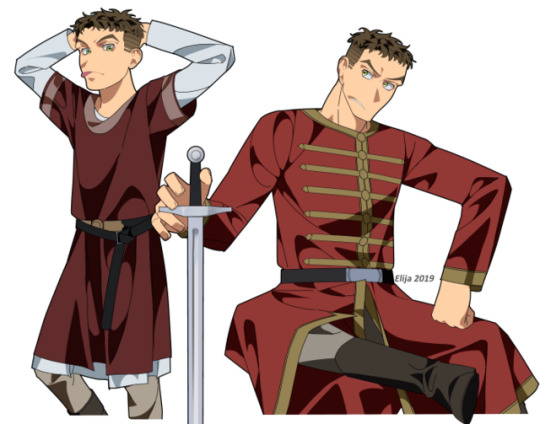

Since I haven’t got the chance to draw Lazar in Medieval this year so far
During the late 12th century and 13th century, several events weakened Eastern Roman Empire (Byzantine Empire) who held large realm of the Balkan Peninsula. Army led by William II King of Sicily launched invasion in 1185, later the Third Crusade and Forth Crusade which Constantinople was pillaged by the crusaders in the later one, short lived Latin Empire created after the capture of the East Roman capital in 1204.
Stefan Nemanja who assumed the throne in 1168 took advantage in this situation, allied with forces against the Eastern Roman Empire also expanded his frontiers. Stefan was the founder of Nemanjić family that would be the royal house of Serbia for the next two centuries. He abdicated in 1196 to his second son Stefan Nemanjić that would became the first king of Serbia thus known as Stefan Prvovenčani (Stefan the First-Crowned).
In the meantime, Stefan Nemanjić's brother Rastko who went to the monastery and took a name of Sava. The Hilandar Monastery at Mount Athos been restored by Sava and his father Stefan Nemanja in 1197 then became the center of Serbian Orthodox learning. Later in 1219, Sava gained independence for the Serbian Orthodox Church and became the first archbishop of Serbia and proclaimed a saint right after his death.
Under the Nemanjić dynasty, Serbia emerged a powerful state in the Balkans with the flourish of religious culture and economic growth, for example during the reign of Uroš mines were opening that developed primarily by Saxons from Hungary now attached Dalmatian merchants, improved the economic position of the Serbian ruler. Later Milutin also benefited from mines during his feud with Dragutin (both were sons of Uroš), in 1314 Stefan Dečanski revolted against his father Milutin but was not successful, then Dečanski was exiled to Constantinople with his family and to be blinded, it was possible he didn't lost all eyesight, as later shown.
In January 1322 Dečanski been crowned as king and his son as Stefan Dušan as young king after the civil war between him and Vladislav. Dušan was crowned in 1331 after some nobility had been dissatisfied since his father was not willing enough to wage war against Eastern Roman Empire thus sparked revolt to dethrone him. Serbia expand even more southward during Dušan's reign, also draw into and benefited in civil war broke out in the Eastern Roman Empire in 1341 after the death of emperor Andronikos III Palaiologos, between his son John V and his general John VI Kantakouzenos.
Dušan adopted the title of emperor at his coronation in Skopje in 1346, as the "Emperor of Serbs and Greeks", soon "Emperor and autocrat of the Serbs, Greeks, Bulgarians, and Albanians"). Later in 1349 Dusan's Code was promulgated .This period be seen as the Golden Age and Dušan also knows as Dušan Silni (Dušan the Mighty). However the glory was rather short lived. After Dušan's death in 1355 the empire began to disintegrate under nobility leaders, while the successive Stefan Uroš V was not strong enough to keep them in control, he was also the last king of Nemanjić dynasty since he died childless.
In the meantime, another issue besides the rivalry leaders was the emerging expansion of Ottoman Empire. During this period South Slav leaders were frequently willing to ally themselves with the Ottomans in the hope of securing aid against rivals. The Ottomans was successes at the Battle of Marista in 1371 that opening up the Balkans to the Ottomans and weaking the resistance of Serbia. On June 28 (June 15 O.S.) 1389 battle between Lazar Hrebeljanović and his ally and Ottoman Sultan Murad I broke out at Kosovo Polje, which both of the leaders dead. Later Serbian Despotate survived and continued to rule but had to accept the position of vassals to the Ottomans, until the fall Smederevo in 1459 to the empire.
(Maps show Serbia under Stefan Nemanjić, 1350 and 1422)
(xxxx)
17 notes
·
View notes
Photo
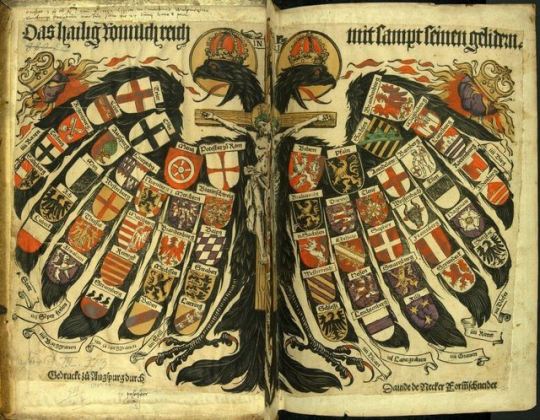





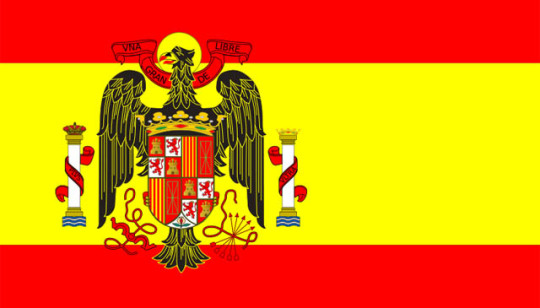



“The earliest depiction of the double-headed eagle can be found on ancient on Hittite monuments in central Anatolia. In the early 19th century, in Boğazkale, an old Hittite capital in modern-day Turkey...The double-headed eagle motif originally dates from c. 3800 BC. The Hittites had worshiped the double headed eagle as the King of Heaven, who was also called the Hittite Bird of the Sun. The bird was their symbol to signify Hittite military power.”

”The bird bird appears in Lygash under the name of Imgig, and was the Sumerian symbol for the god of Lagash, Ninurta son of Enlil...the double-headed eagle, however, is not restricted to supporting deities, and also appears supporting human figures. This is an indication of the use of the eagle as a personal (or family) symbol...The Seliuk Turks referred to it as Hamca and among the Zuni it appeared as a highly conventionalized design, but still as a double-headed thunder bird, the Sikyatki.”
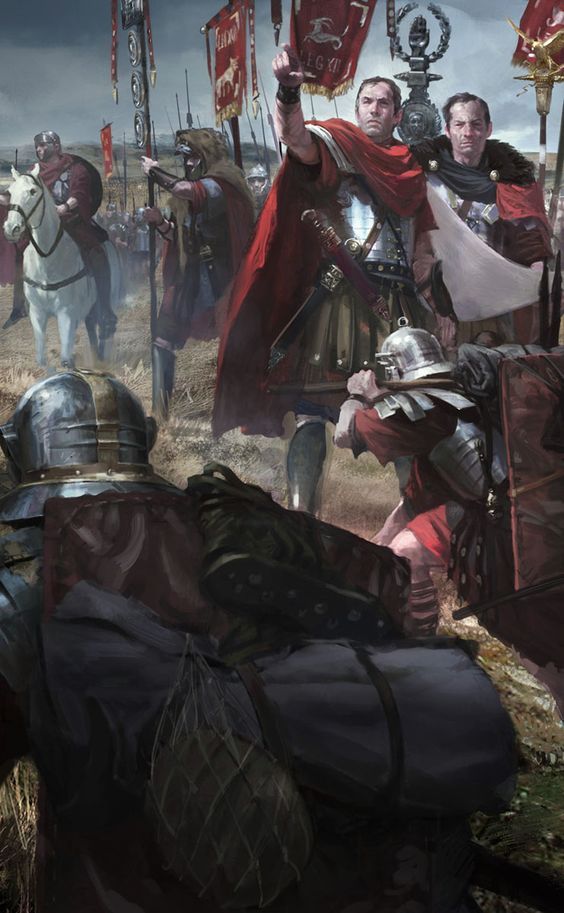
”The double-headed eagle has been used as an emblem by countries, nations, and royal houses in Europe since the early medieval period. Notable examples include the Byzantine House of Palaiologos, the Holy Roman Empire, the House of Habsburg, and the Ruriks and Romanovs of Russia. The symbol often appears on countries’ coats of arms and flags. The emblem was adopted by the Russians, Poles, Serbians, Prussians, Austrians and Saxons. It was used as a private seal and as arms in Germany, Spain, France, Netherlands, England, and Russia.”
(via Mystery Of The Ancient Double-Headed Eagle Symbol | Locklip)
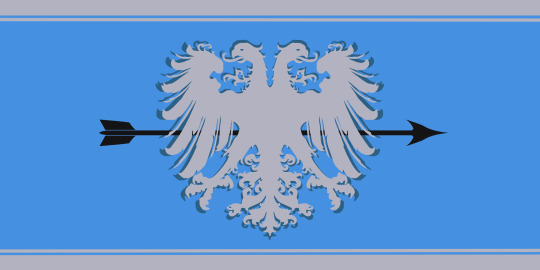
Double Headed Eagle iconology of Byzantium
“Greek scholars have tried to make links with ancient symbols: the eagle was a common design representing power in ancient city-states, while there was an implication of a "dual-eagle" concept...However, there is virtually no doubt that its origin is a blend of Roman and Eastern influences. Indeed, the early Byzantine Empire inherited the Roman eagle (extended wings, head facing right) as an imperial symbol.”

“[T]he church of Greece kept, and is to this date still using Byzantine flags with the eagle, usually black on yellow/gold background. But after the Ottoman conquest this symbol also found its way to a "new Constantinople" (or Third Rome), i.e. Moscow. Russia, deeply influenced by the Byzantine Empire, saw herself as its heir and adopted the double-headed eagle as its imperial symbol. It was also adopted by the Serbs, the Montenegrins, the Albanians and a number of Western rulers, most notably in Germany and Austria.”
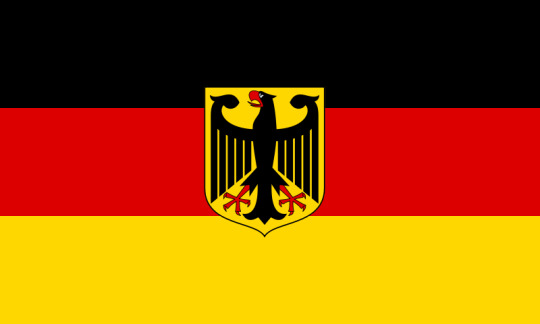
“The first mention of a double-headed eagle in the West dates from 1250 in a roll of arms of Matthew of Paris for Emperor Friedrich II. Theodore II Laskaris chose it for his symbol as Emperor (Empire of Nicaea), taking it to symbolize his state's claims to all the Byzantine Empire's former domains, both European (West) and Asian (East)... After the recapture of Constantinople and the restoration of the Byzantine Empire, the symbol was used as an emblem of the imperial family, but it is uncertain whether it was the official emblem of the Empire.”

“The double-headed eagle became the standard of the Seljuk Turks with the crowning of Toghrül (meaning "Eagle") Beg at Mosul in 1058 as "King of the East and the West" and was much used afterwards. The Sultans of Rum, Ala ad-Din Kay Qubadh I (1220-1237) and his son Kay Khusrau II (1237-1246) used the bicephalous eagle in their standards, and the motif was also found on tissues, cut stones, mural squares, and Koran holders.”
(via Double Headed Eagle iconology of Byzantium | Kythera Family blog)

The double-headed eagle of the Third Rome
“When looking carefully, you can distinguish 9 coats of arms on the eagle. However, in most cases, these shields are printed so tiny that few details can be revealed. The center shield on the eagle's chest is the one with the arms of Moscow. Then, in clockwise order starting from the heads, we see the arms of [Khanate of] Astrakhan, [Khanate of] Siberia, [Kingdoms & Principalities of] Georgia, [Grand Duchy of] Finland, [Grand Principalities of] Kiev-Vladimir-Novgorod, [Khanate of] Taurica, [Kingdom of] Poland and [Khanate of] Kazan...this double-headed eagle represents about 500 years of Russian imperial history.”
(via The double-headed eagle of the Third Rome | Franky’s Scripophily BlogSpot)
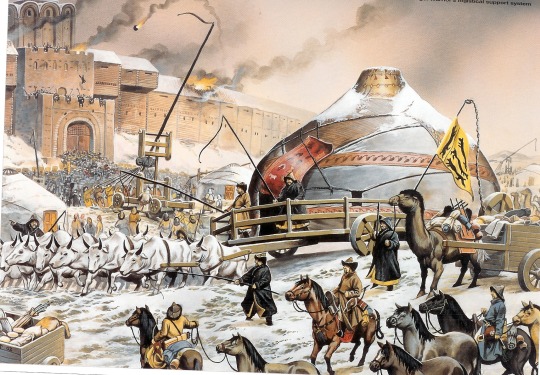
Kiev and the Byzantine Legacy in Russia
“The history of Kiev begins under the rule of the Rus. The Rus (also known as Varangians) were original Vikings who began to trade along the Volga River and later the Dnieper River. They establish several principalities centered on cities like Novgorod and later Kiev...Vladimir was also among the rulers of Kiev who gave military assistance to the Byzantines, leading to the formation of the Varangian Guard...Saint Sophia's Cathedral in Kiev, which dates to the early 11th century. It was designed rival Hagia Sophia in Constantinople, thus symbolizes Kiev as the 'new Constantinople'. There was even a Golden Gate in Kiev, named after the famous Golden Gate of Constantinople. In addition, the Kiev Monastery of the Caves date to 1051 and were influential in the spread of Orthodox thought.“
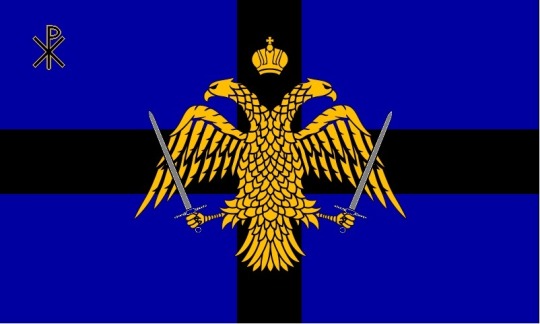
“As the Byzantine Empire was slowly dying, Moscow began to grow in power. The Metropolitan of Kiev moved to Moscow in the 14th century as the Tatars undermined the power of Kiev. Ivan III (1440-1505), the Grand Prince of Moscow, ended the dominance of the Golden Horde in Russia, and became to expand his own power. In 1472, He married Sophia Palaiologina, the niece of the last Byzantine Emperor, after the fall of Constantinople. He would then claim that Moscow was the “Third Rome” and by the end of the 16th century, the Metropolitan of Moscow claimed the title of patriarch. The title Tsar also reflects this claim to be the successor of Constantinople. In fact, the Russian Empire’s symbol was the Byzantine Double Eagle until the Soviet’s overthrew Tsar Nicholas II. This symbol has since returned after the fall of the Soviet Union.“

Mongol-Papal Encounter: Letter Exchange between Pope Innocent IV and Güyük Khan in 1245-1246
“By the late 1230s, Mongol armies had begun raiding parts of Russia and eastern Europe. Between 1236 and 1242, these military campaigns–commanded by Subutai (d. 1248), Batu Khan (d. 1255), and Berke (d. 1266), among others–had wrought major devastation across Russia, Poland, Hungary and the Balkans. The cities of Kiev, Pereyaslavl, Chernihiv, Lublin, and other major population centers in eastern and central Europe were sacked and their populations massacred.”
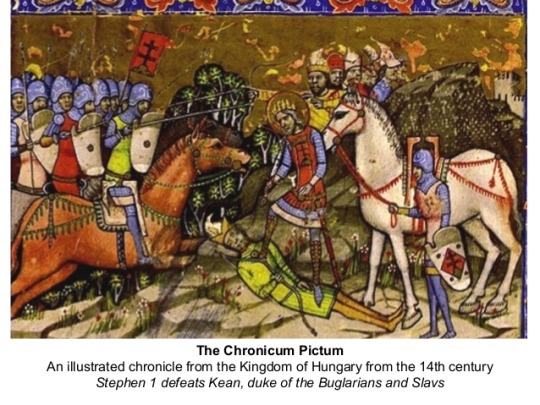
“The defeats of the Polish forces at the Battle of Liegnitz/Legnica (April 9th 1241) and the Hungarian military at the Battle of Mohi (April 11th 1241) opened up most of the Balkans and Central Europe to Mongol raids, leading to even more destruction, displacement and massacres. These alarming developments shook the foundations of Latin Christendom. Although the Mongols withdrew from most of the Balkans and east-central Europe soon after”
(via Mongol-Papal Encounter: Letter Exchange between Pope Innocent IV and Güyük Khan in 1245-1246 | Ballandalus blog)
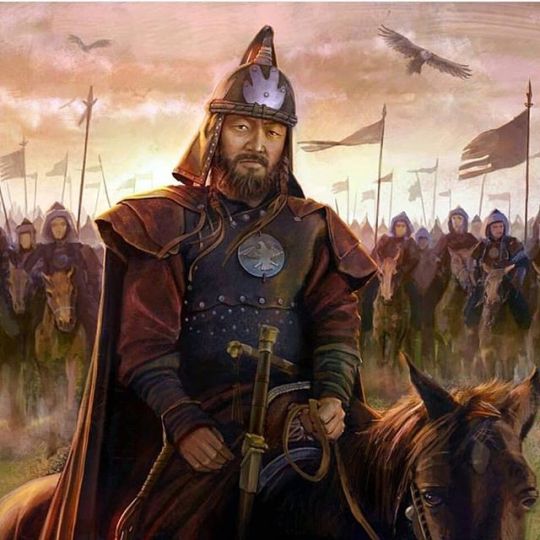
Borjigin
“A Borjigin or Borjigid is a member of the sub-clan, which started with Yesugei (but the Secret History of the Mongols makes it go back to Yesugei's ancestor Bodonchar), of the Kiyat clan. Yesugei's descendants were thus said to be Kiyat-Borjigin. The senior Borjigid provided ruling princes for Mongolia and Inner Mongolia until the 20th century. The clan formed the ruling class among the Mongols and some other peoples of Central Asia and Eastern Europe.”
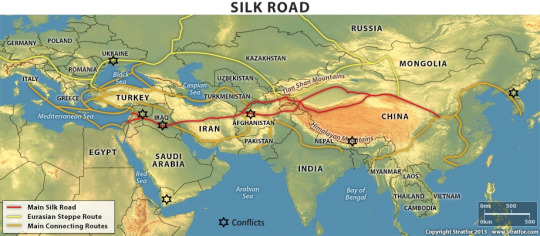
“The Borjigin family ruled over the Mongol Empire from the 13th to 14th century. The rise of Genghis (Chingis) narrowed the scope of the Borjigid-Kiyad clans sharply. This separation was emphasized by the intermarriage of Genghis's descendants with the Barlas, Baarin, Manghud and other branches of the original Borjigid.”

”In the western regions of the Empire, the Jurkin and perhaps other lineages near to Genghis's lineage used the clan name Kiyad but did not share in the privileges of the Genghisids. The Borjigit clan had once dominated large lands stretching from Java to Iran and from Indo-China to Novgorod. In 1335, with the disintegration of the Ilkhanate in Iran, the first of numerous non-Borjigid-Kiyad dynasties appeared. Established by marriage partners of Genghisids, these included the Suldus Chupanids, Jalayirids in the Middle East, the Barulas dynasties in Chagatai Khanate and India, the Manghud and Onggirat dynasties in the Golden Horde and Central Asia, and the Oirats in western Mongolia.In 1368, under Toghun Temür, the Yuan dynasty was overthrown by the Ming dynasty in China but members of the family continued to rule over Mongolia homeland into the 17th century, known as the Northern Yuan dynasty.”
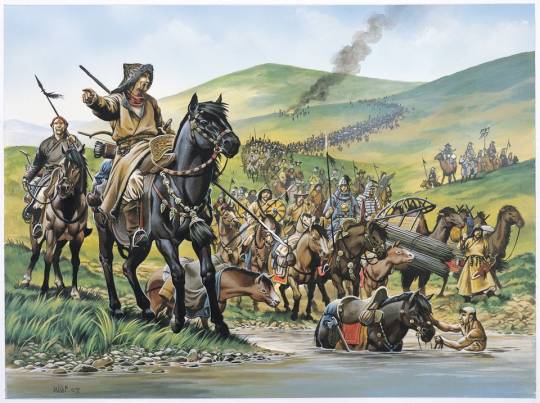
“After the breakup of the Golden Horde, the Khiyat continued to rule the Crimea and Kazan until the late 18th century. They were annexed by the Russian Empire and the Chinese...The Qing dynasty respected the Borjigin family and the early emperors married the Hasarid Borjigids of the Khorchin. Even among the pro-Qing Mongols, traces of the alternative tradition survived. Aci Lomi, a banner general, wrote his History of the Borjigid Clan in 1732–35. The 18th century and 19th century Qing nobility was adorned by the descendants of the early Mongol adherents including the Borjigin.”

“Genghis Khan founded the Mongol Empire in 1206. His grandson, Kublai Khan, after defeating his younger brother Ariq Böke, founded the Yuan dynasty in China in 1271. The dynasty was overthrown by the Ming dynasty during the reign of Toghaghan-Temür in 1368, but it survived in Mongolia homeland, known as the Northern Yuan dynasty.”

Bahri dynasty
“The Bahri dynasty or Bahriyya Mamluks was a Mamluk dynasty of mostly Cuman-Kipchak Turkic origin that ruled the Egyptian Mamluk Sultanate from 1250 to 1382. They followed the Ayyubid dynasty, and were succeeded by a second Mamluk dynasty, the Burji dynasty."
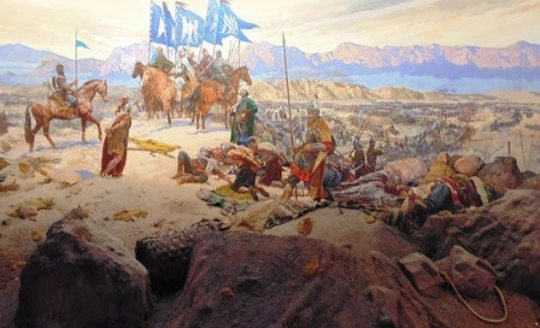

Burji dynasty
“From 1250 Egypt had been ruled by the first Mamluk dynasty, the mostly Cuman-Kipchak Turkic Bahri dynasty. In 1377 a revolt broke out in Syria which spread to Egypt...Barquq was proclaimed sultan in 1382, ending the Bahri dynasty...Permanently in power, he founded the Burji dynasty.”
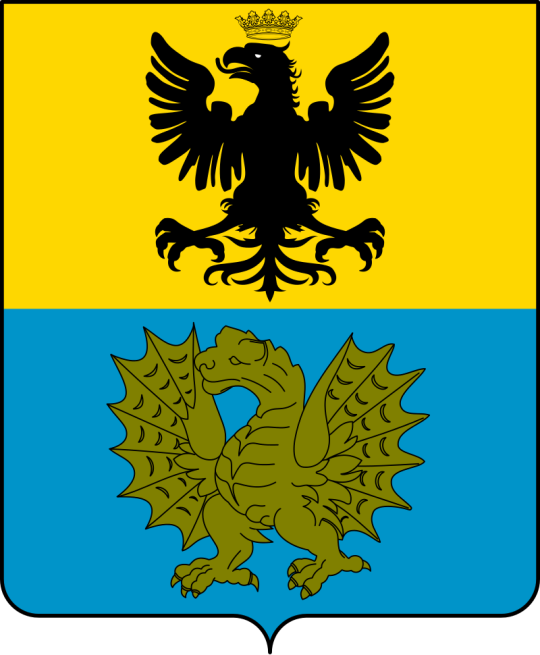
House of Borghese
“Borghese is the surname of a princely family of Italian noble and papal background, originating as the Borghese or Borghesi in Siena, where they came to prominence in the 13th century holding offices under the commune. The head of the family, Marcantonio, moved to Rome in the 16th century and there, following the election (1605) of his son Camillo as Pope Paul V they rose in power and wealth. They were one of the leading families of the Black Nobilityand maintain close ties to the Vatican.”

Guelphs and Ghibellines
“The Guelphs and Ghibellines were factions supporting the Pope and the Holy Roman Emperor, respectively, in the Italian city-states of central and northern Italy. During the 12th and 13th centuries, rivalry between these two parties formed a particularly important aspect of the internal politics of medieval Italy.”
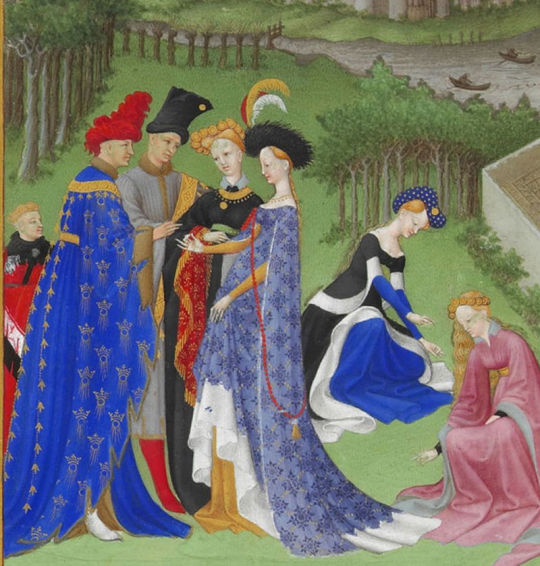
”The names were likely introduced to Italy during the reign of Frederick Barbarossa. When Frederick conducted military campaigns in Italy to expand imperial power there, his supporters became known as Ghibellines (Ghibellini). The Lombard League and its allies were defending the liberties of the urban communes against the Emperor's encroachments and became known as Guelphs (Guelfi). The Ghibellines were thus the imperial party, while the Guelphs supported the Pope. Broadly speaking, Guelphs tended to come from wealthy mercantile families, whereas Ghibellines were predominantly those whose wealth was based on agricultural estates.”
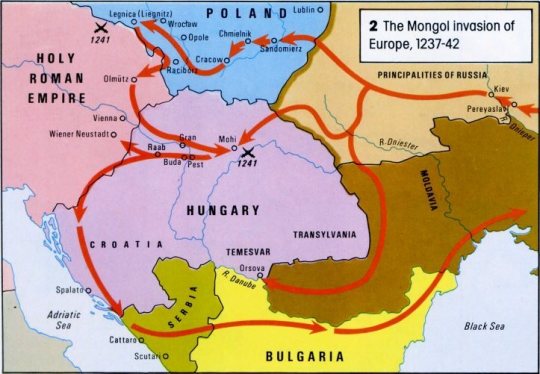
Frederick II, Holy Roman Emperor
“In 1241–1242, the forces of the Golden Horde decisively defeated the armies of Hungary and Poland and devastated their countryside and all their unfortified settlements. King Béla IV of Hungary appealed to Frederick for aid, but Frederick, being in dispute with the Hungarian king for some time (as Bela had sided with the Papacy against him) and not wanting to commit to a major military expedition so readily, refused. He was unwilling to cross into Hungary, and although he went about unifying his magnates and other monarchs to potentially face a Mongol invasion, he specifically took his vow for the defense of the empire on "this side of the Alps."

”Frederick was aware of the danger the Mongols posed, and grimly assessed the situation, but also tried to use it as leverage over the Papacy to frame himself as the protector of Christendom. While he called them traitorous pagans, Frederick expressed an admiration for Mongol military prowess after hearing of their deeds, in particular their able commanders and fierce discipline and obedience, judging the latter to be the greatest source of their success. He called a levy throughout Germany while the Mongols were busy raiding Hungary. In mid 1241 Federick dispersed his army back to their holdfasts as the Mongols preoccupied themselves with the lands east of the Danube, attempting to smash all Hungarian resistance. He subsequently ordered his vassals to strengthen their defenses, adopt a defensive posture...A chronicler reports that Frederick received a demand of submission from Batu Khan at some time.”
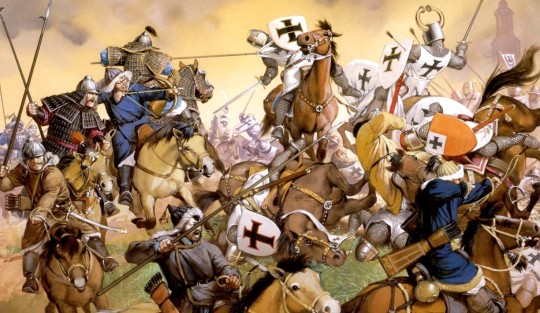
“A letter written by Emperor Frederick II, found in the Regesta Imperii, dated to June 20, 1241, and intended for all his vassals in Swabia, Austria, and Bohemia, included a number of specific military instructions. His forces were to avoid engaging the Mongols in field battles, hoard all food stocks in every fortress and stronghold, and arm all possible levies as well as the general populace.
Mongol probing attacks materialised on the Holy Roman Empire's border states...A full-scale invasion never occurred, as the Mongols spent the next year pillaging Hungary before withdrawing. After the Mongols withdrew from Hungary back to Russia, Frederick turned his attention back towards Italian matters.”

Pope Innocent IV
“In 1245, Innocent IV issued bulls and sent an envoy in the person of Giovanni da Pian del Carpine (accompanied by Benedict the Pole) to the "Emperor of the Tartars". The message asked the Mongol ruler to become a Christian and stop his aggression against Europe. The Khan Güyük replied in 1246 in a letter written in Persian that is still preserved in the Vatican Library, demanding the submission of the Pope and the other rulers of Europe...two Mongolian envoys to the Papal seat in Lyon, Aïbeg and Serkis. In the letter Guyuk demanded that the Pope appear in person at the Mongol imperial headquarters, Karakorum in order that “we might cause him to hear every command that there is of the jasaq”.
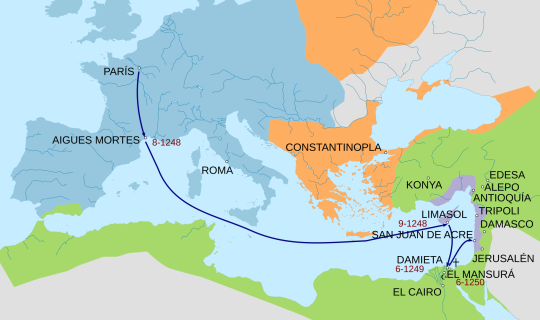
Seventh Crusade
“In 1244, the Khwarezmians, recently displaced by the advance of the Mongols, took Jerusalem on their way to ally with the Egyptian Mamluks. This returned Jerusalem to Muslim control, but the fall of Jerusalem was no longer a crucial event to European Christians, who had seen the city pass from Christian to Muslim control numerous times in the past two centuries. This time, despite calls from the Pope, there was no popular enthusiasm for a new crusade. There were also many conflicts within Europe that kept its leaders from embarking on the Crusade.”
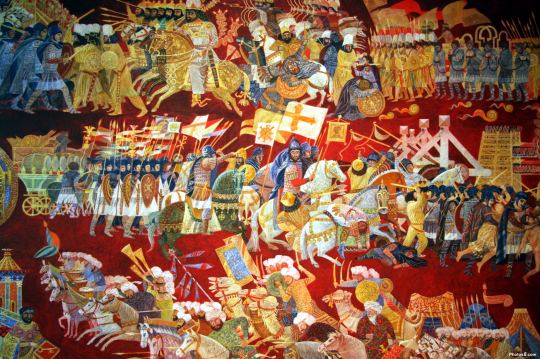
“Pope Innocent IV and Frederick II, Holy Roman Emperor continued the papal-imperial struggle. Frederick had captured and imprisoned clerics on their way to the First Council of Lyon, and in 1245 he was formally deposed by Innocent IV. Pope Gregory IX had also earlier offered King Louis' brother, count Robert of Artois, the German throne, but Louis had refused. Thus, the Holy Roman Emperor was in no position to crusade. Béla IV of Hungary was rebuilding his kingdom from the ashes after the devastating Mongol invasion of 1241.”
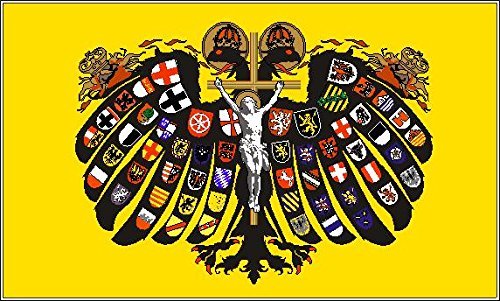
Interregnum (Holy Roman Empire)
“The term Great Interregnum is occasionally used for the period between 1250 (death of Frederick II) and 1273 (accession of Rudolf I)...After the deposition of Frederick II by Pope Innocent IV in 1245...in 1273, Rudolf I of Germany, a minor pro-Staufen count, was elected. He was the first of the Habsburgs to hold a royal title, but he was never crowned emperor. After Rudolf's death in 1291, Adolf and Albert were two further weak kings who were never crowned emperor...Sigismund (r. 1411 – 1437) was crowned emperor in 1433, but only with Frederick III (r. 1452 – 1493), the second emperor of the House of Habsburg, did the Holy Roman Emperor return to an unbroken succession of emperors (with the exception of Charles VII all of the House of Habsburg) until its dissolution in 1806.”

Franco-Mongol alliance
“European attitudes began to change in the mid-1260s, from perceiving the Mongols as enemies to be feared, to potential allies against the Muslims. The Mongols sought to capitalize on this, promising a re-conquered Jerusalem to the Europeans in return for cooperation. Attempts to cement an alliance continued through negotiations with many leaders of the Mongol Ilkhanate in Persia, from its founder Hulagu through his descendants Abaqa, Arghun, Ghazan, and Öljaitü, but without success. The Mongols invaded Syria several times between 1281 and 1312, sometimes in attempts at joint operations with the Franks, but the considerable logistical difficulties involved meant that forces would arrive months apart, never able to coordinate activities in any effective way...the Egyptian Mamluks successfully recaptured all of Palestine and Syria from the Crusaders.”
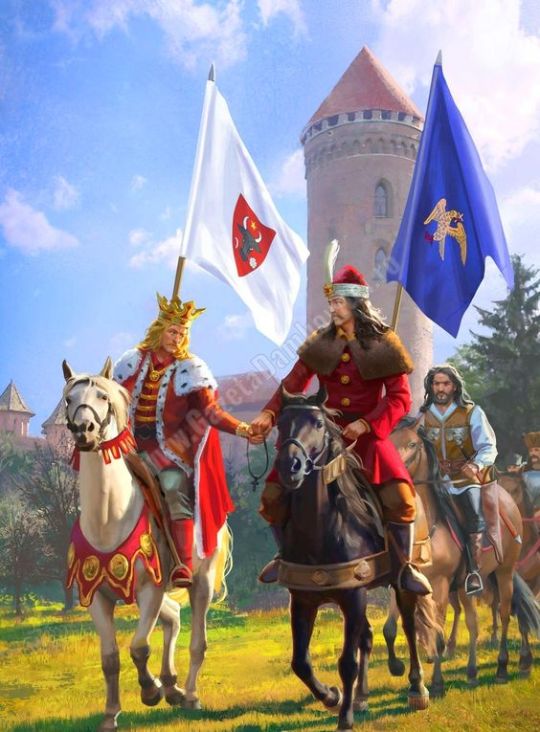
“Christian kings began to prepare for a new crusade (the Seventh Crusade), declared by Pope Innocent IV in June 1245 at the First Council of Lyon. The loss of Jerusalem caused some Europeans to look to the Mongols as potential allies of Christendom, provided the Mongols could be converted to Western Christianity. In March 1245, Pope Innocent IV had issued multiple papal bulls, some of which were sent with an envoy, the Franciscan John of Plano Carpini, to the "Emperor of the Tartars". In a letter now called the Cum non solum, Pope Innocent expressed a desire for peace, and asked the Mongol ruler to become a Christian and to stop killing Christians. However, the new Mongol Great Khan Güyük, installed at Karakorum in 1246, replied only with a demand for the submission of the pope, and a visit from the rulers of the West in homage to Mongol power:”

Hohenstaufen
“The Hohenstaufen also known as Staufer, were a dynasty of German kings (1138–1254) during the Middle Ages. Before ascending to the kingship, they were Dukes of Swabia from 1079. As kings of Germany, they had a claim to Italy, Burgundy and the Holy Roman Empire. Three members of the dynasty—Frederick I (1155), Henry VI (1191) and Frederick II (1220)—were crowned emperor. Besides Germany, they also ruled the Kingdom of Sicily (1194–1268) and the Kingdom of Jerusalem (1225–1268) [succeeded by the House of Habsburg in 1268]”
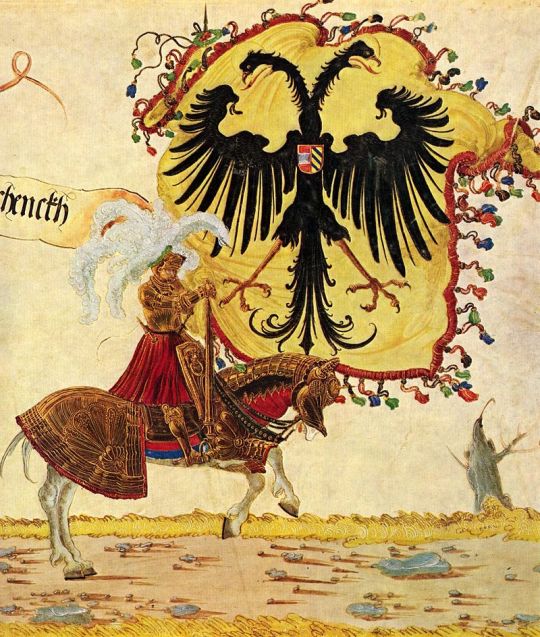
House of Habsburg
“The House of Habsburg and alternatively called the House of Austria was one of the most influential and distinguished royal houses of Europe. The throne of the Holy Roman Empire was continuously occupied by the Habsburgs from 1438 until their extinction in the male line in 1740. The house also produced emperors and kings of Bohemia, Hungary, Croatia, Galicia, Portugal and Spain with their respective colonies, as well as rulers of several principalities in the Netherlands and Italy.”

“The Habsburg Empire was never composed of a single unified and unitary state as Bourbon France, Hohenzollern Germany, or Great Britain was. It was made up of an accretion of territories that owed their historic loyalty to the head of the house of Habsburg as hereditary lord. The Habsburgs had mostly married the heiresses of these territories, most famously of Spain and the Netherlands. They used their coats of arms then as a statement of their right to rule all these territories."
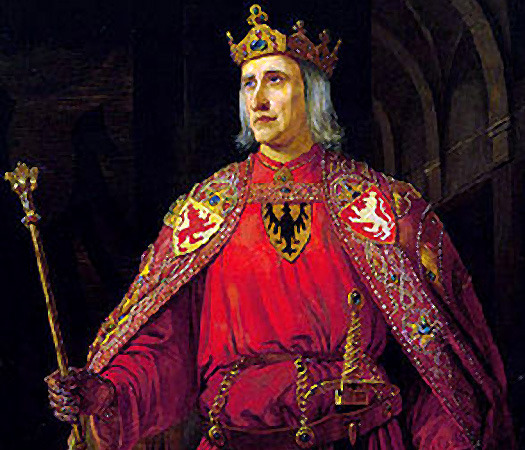
Rudolf I of Germany
“Rudolf I, also known as Rudolf of Habsburg was Count of Habsburg from about 1240 and King of Germany from 1273 until his death.Rudolf's election marked the end of the Great Interregnum in the Holy Roman Empire after the death of the Hohenstaufen emperor Frederick II in 1250.
The disorder in Germany during the interregnum after the fall of the Hohenstaufen dynasty afforded an opportunity for Count Rudolf to increase his possessions. His wife was a Hohenberg heiress; and on the death of his childless maternal uncle Count Hartmann IV of Kyburg in 1264, he also seized his valuable estates.”

Kyburg family
“Kyburg also Kiburg was a noble family of grafen (counts) in the Duchy of Swabia, a cadet line of the counts of Dillingen, who in the late 12th and early 13th century ruled the County of Kyburg, corresponding to much of what is now Northeastern Switzerland.The family was one of the four most powerful noble families in the Swiss plateau beside the House of Habsburg, House of Zähringen and the House of Savoy during 12th century. With the extinction of the Kyburg family's male line in 1264, Rudolph of Habsburg laid claim to the Kyburg lands and annexed them to the Habsburg holdings, establishing the line of "Neu-Kyburg", which was in turn extinct in 1417.”
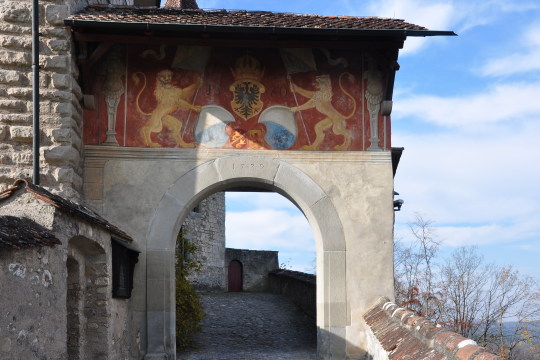
“In 1250/51 the childless Hartmann IV gave the western part of the property with the center of Burgdorf to his nephew Hartmann V. As a result, Hartmann V, who was supported by the Habsburgs, came into conflict repeatedly with the growing city-state of Bern. His uncle had to step in often to keep the peace. When Hartmann V died in 1263, Count Rudolf von Habsburg became the guardian of Hartmann's daughter Anna, and also took over the administration of the western section. In 1264, after the death of Hartman IV, Rudolf stepped in to control the eastern half as well. Though this brought him into conflict with the claims by the widow Margaret of Savoy and her family.”

”Anna, daughter of Hartmann V, married Eberhard I of Habsburg-Laufenburg. This marriage was intended to secure Habsburg interests in Aargau (Argovia) against Savoy. The son of Eberhard and Anna, Hartmann I (1275–1301) again called himself "of Kyburg". His line came to be known as that of Neu-Kyburg or Kyburg-Burgdorf, persisting until 1417.”

House of Borgia
“The House of Borgia was an Italo-Spanish noble family, which rose to prominence during the Italian Renaissance. They were from Aragon, the surname being a toponymic from the town of Borja, then in the Crown of Aragon, in Spain.The Borgias became prominent in ecclesiastical and political affairs in the 15th and 16th centuries, producing two popes: Alfons de Borja, who ruled as Pope Callixtus III during 1455–1458, and Rodrigo Lanzol Borgia, as Pope Alexander VI, during 1492–1503.”

Name of Turkey
“The English name Turkey, now applied to the modern Republic of Turkey, is historically derived (via Old French Turquie) from the Medieval Latin Turchia, Turquia. It is first recorded in Middle English (as Turkye, Torke, later Turkie, Turky), attested in Chaucer, ca. 1369. The Ottoman Empire was commonly referred to as Turkey or the Turkish Empire
The English name of Turkey (from Medieval Latin Turchia/Turquia) means "land of the Turks"...The phrase land of Torke is used in the 15th-century Digby Mysteries. Later usages can be found in the Dunbar poems, the 16th century Manipulus Vocabulorum ("Turkie, Tartaria")...The medieval Greek and Latin terms did not designate the same geographic area now known as Turkey. Instead, they were mostly synonymous with Tartary, a term including Khazaria and the other khaganates of the Central Asian steppe, until the appearance of the Seljuks and the rise of the Ottoman Empire in the 14th century...The Arabic cognate Turkiyya (Arabic: تركيا) in the form Dawla al-Turkiyya (State of the Turks) was historically used as an official name for the medieval Mamluk Sultanate which covered Egypt, Palestine, Syria, Hejaz and Cyrenaica.”

What’s the Word for Turkey in Turkish?
“The word for turkey in Turkish is hindi.What? OK, so what’s the Hindi word for turkey?Turns out that the word for turkey in Hindi is टर्की. And that, if you don’t know Devanagari, is transcribed ṭarkī in the Latin alphabet.
Turkeys are native to the Americas, but the Europeans first encountering them thought that they looked like a kind of guinea fowl, another large, ungainly, colorful-faced kind of bird. Now, guinea fowl were also called turkey fowl, but that’s because they actually had a legitimate connection to Turkey the country: Europeans received most of their guinea fowl imported via Turkey...the first turkeys brought to Europe also generally came via Turkey: The birds had originally been domesticated by the Aztecs and were brought to Europe by Spanish conquistadores, who traded them to the rest of the continent via North Africa.
Japanese and Korean call it the equivalent of “seven-faced bird,” Abkhazian and other languages in the Caucasus call it “blue bird,” and Thai and Urdu call it “elephant chicken” or “elephant trunk chicken.”
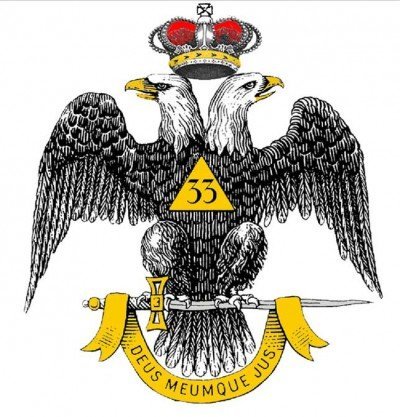
(via What’s the Word for Turkey in Turkish? | Slate)
#turkey#silkroad#chainofcommerce#noblemerchantclans#ambasadorsorspies#kiyat#borjigin#burji#borgia#borghese#kiburg#ghibelines#holyromanempire#rudolfofhapsburg#hapsburgdynasty#vladtheimpaler#transylvania#house of saxe-coburg and gotha#popeinnocentiv#guyukkhan#mongolultimatum#marriagealliance#tributetax#wagewarfortribute#secrethistoryofthemongols#doubleheadedeagle#goldenhorde#goldenorder
13 notes
·
View notes